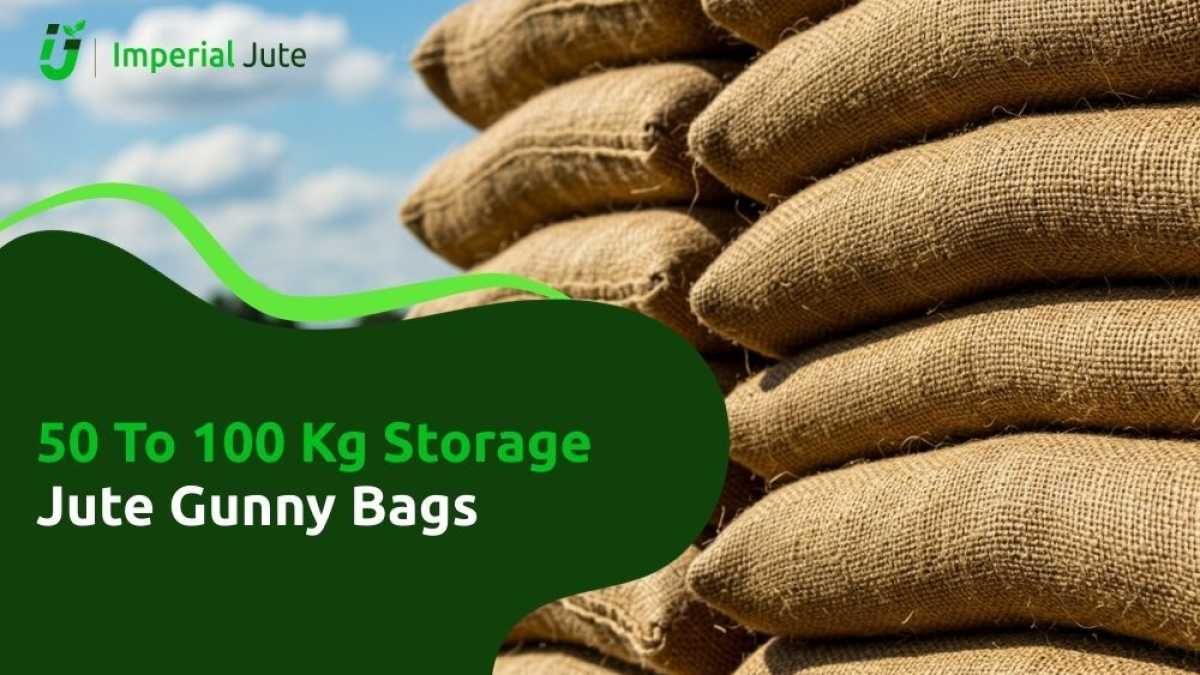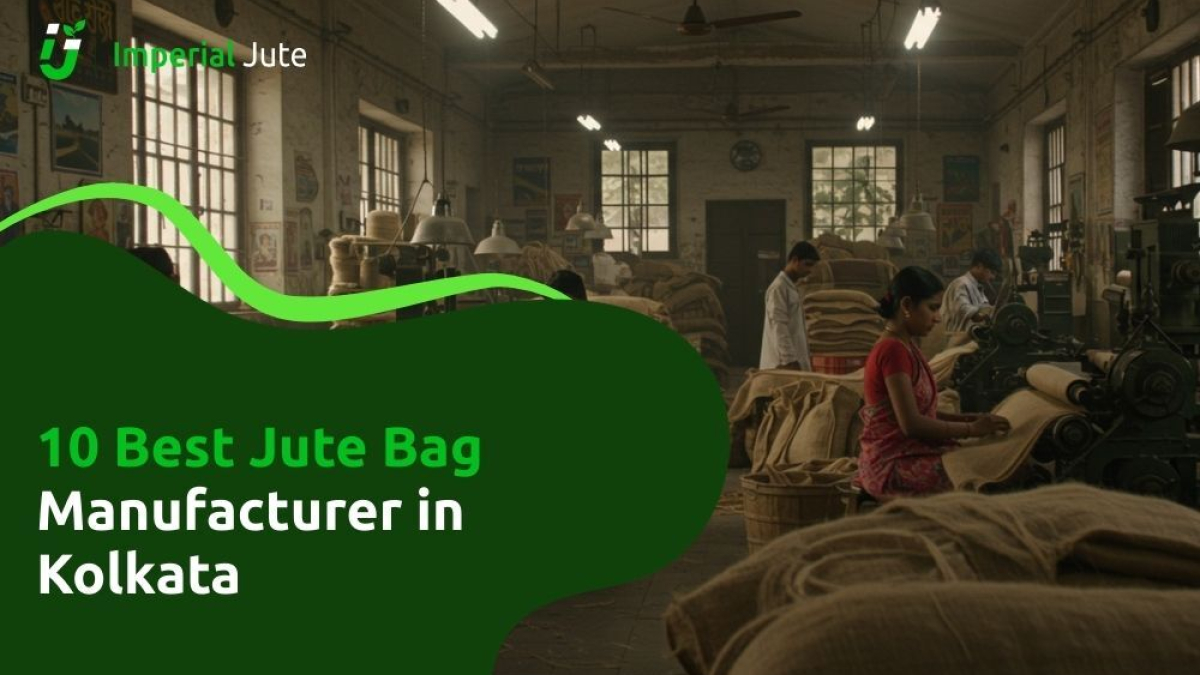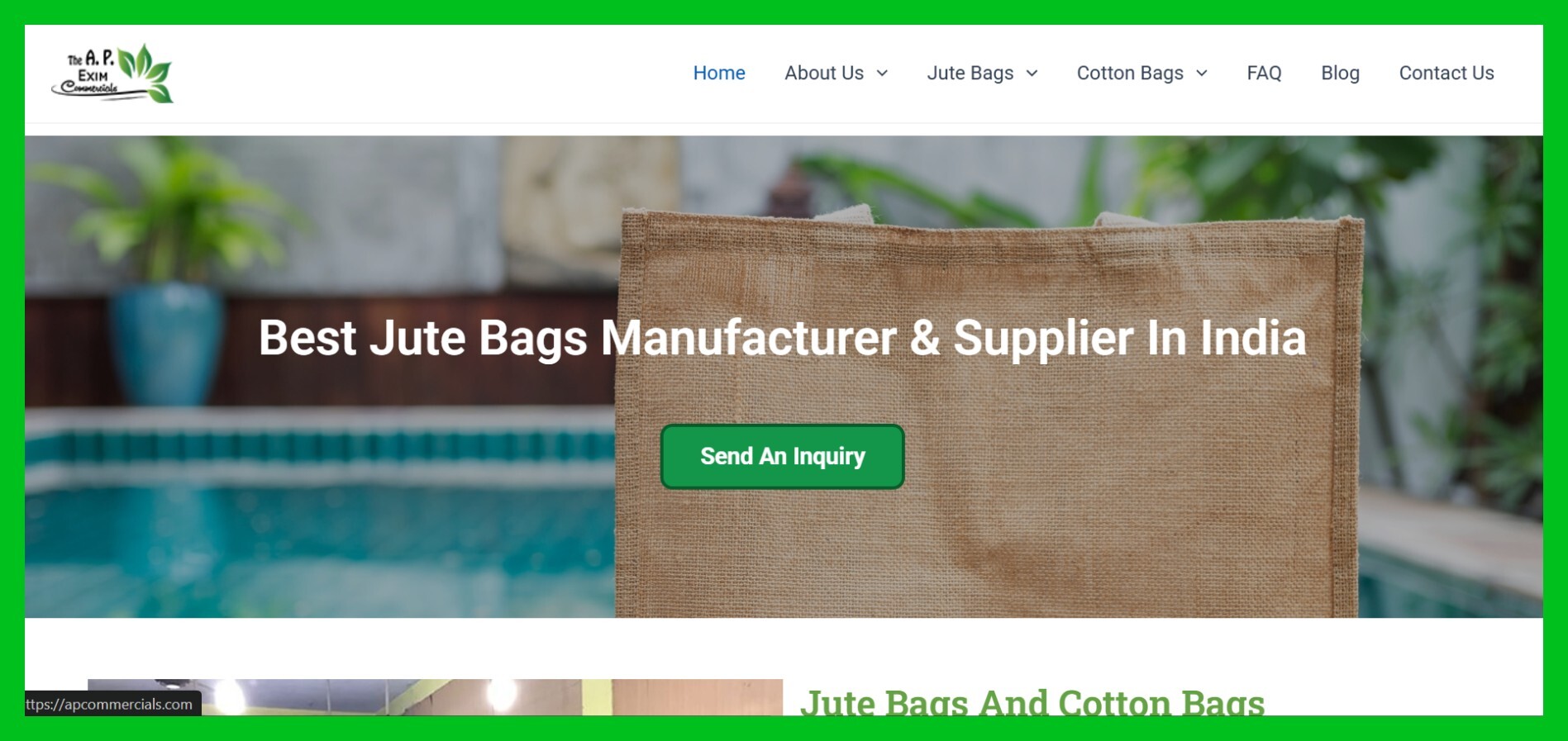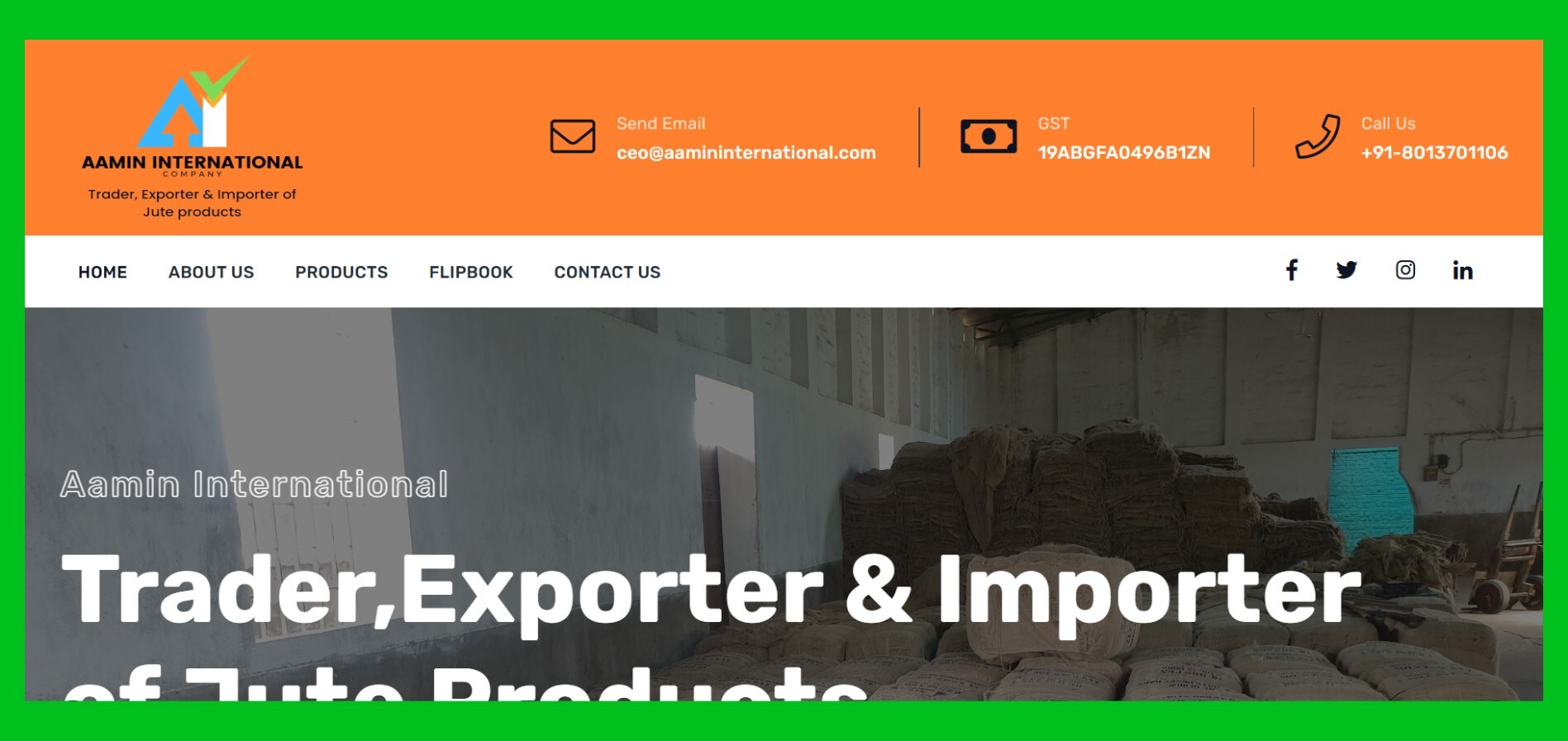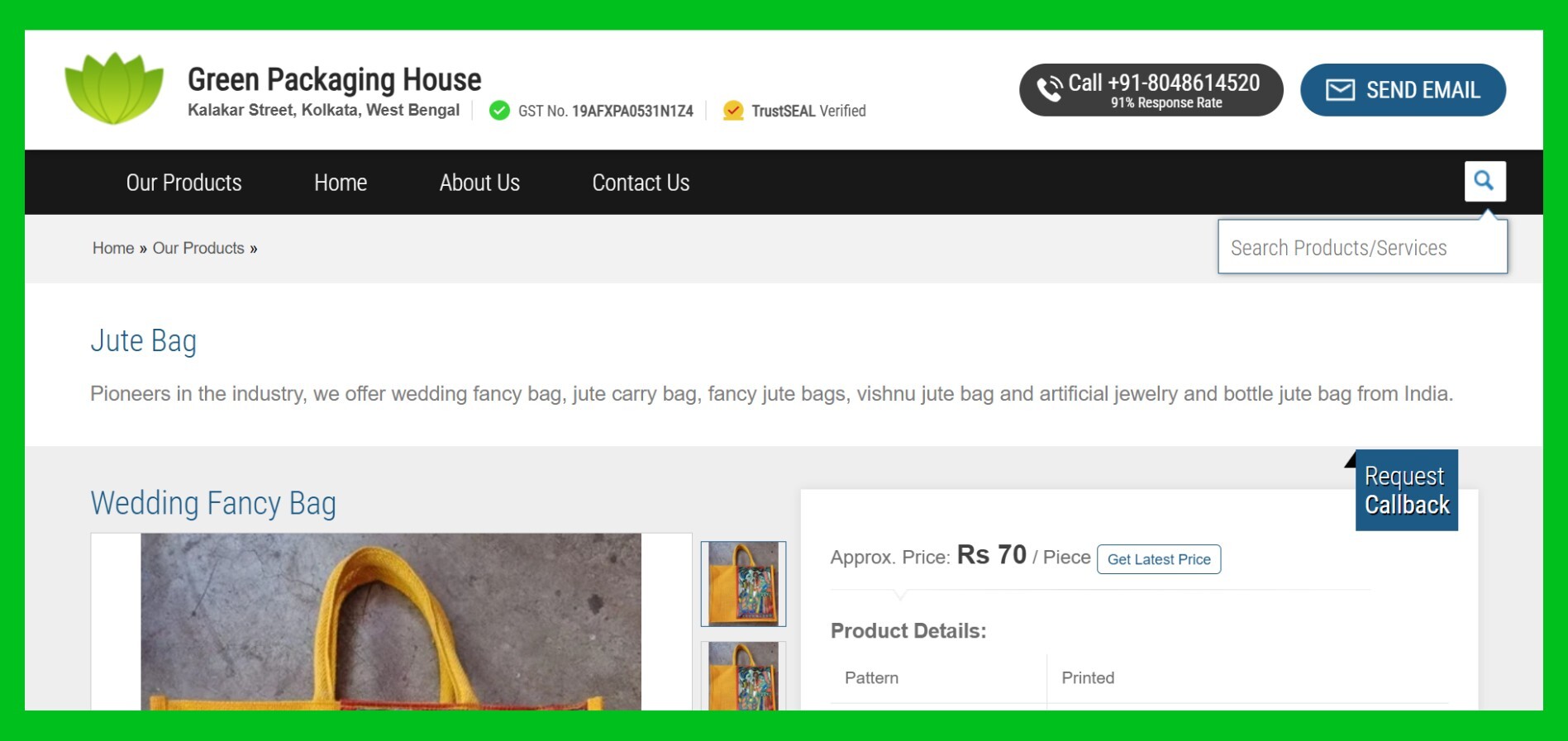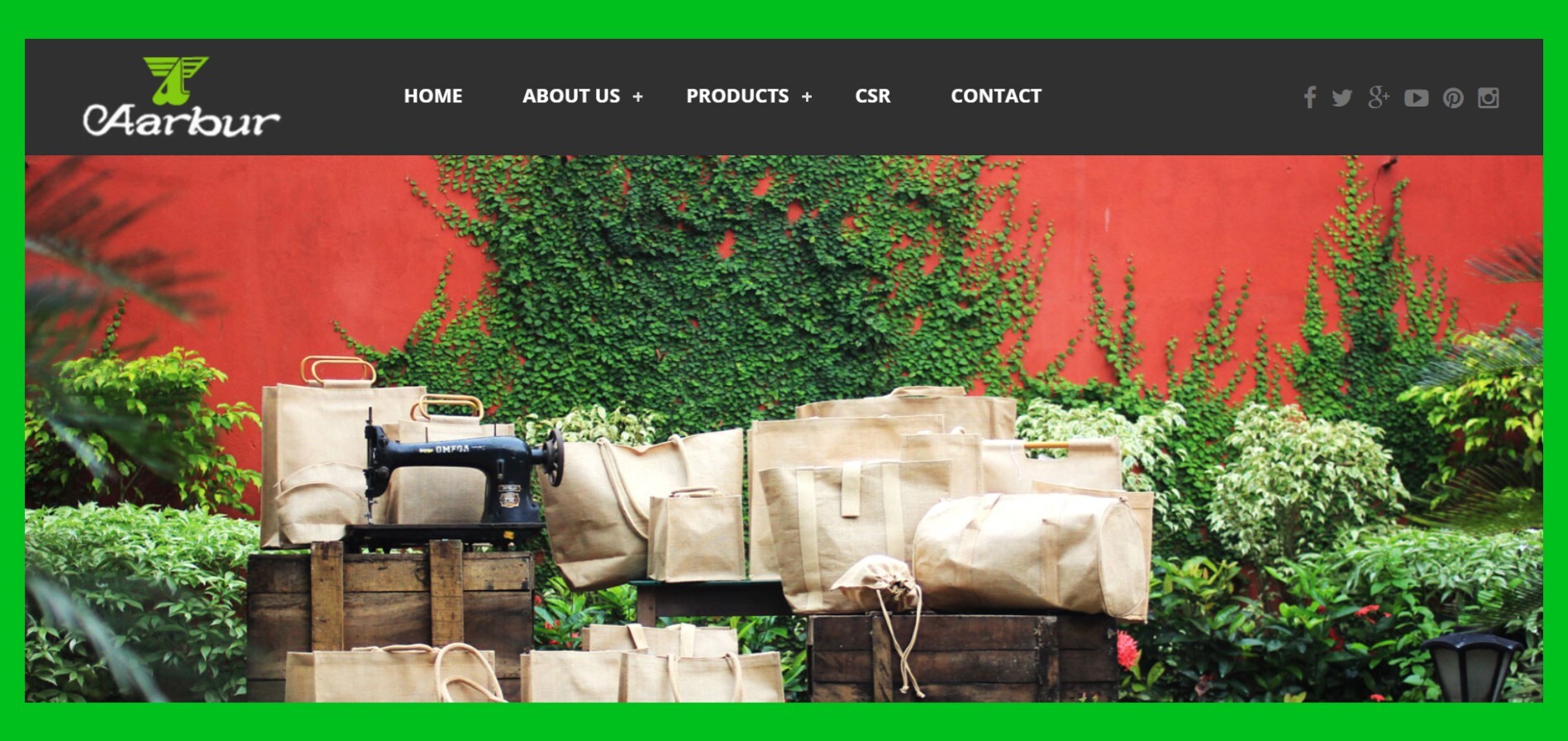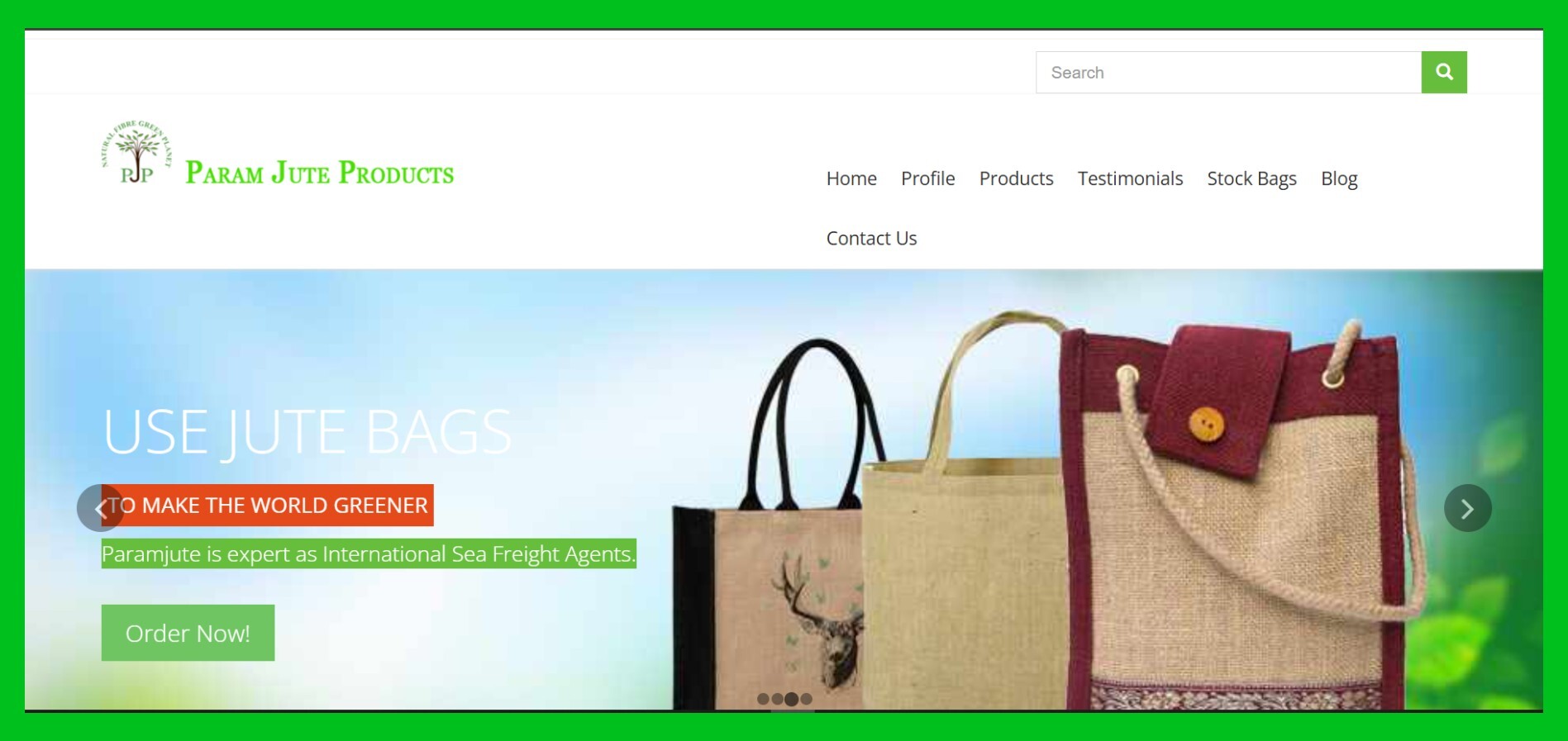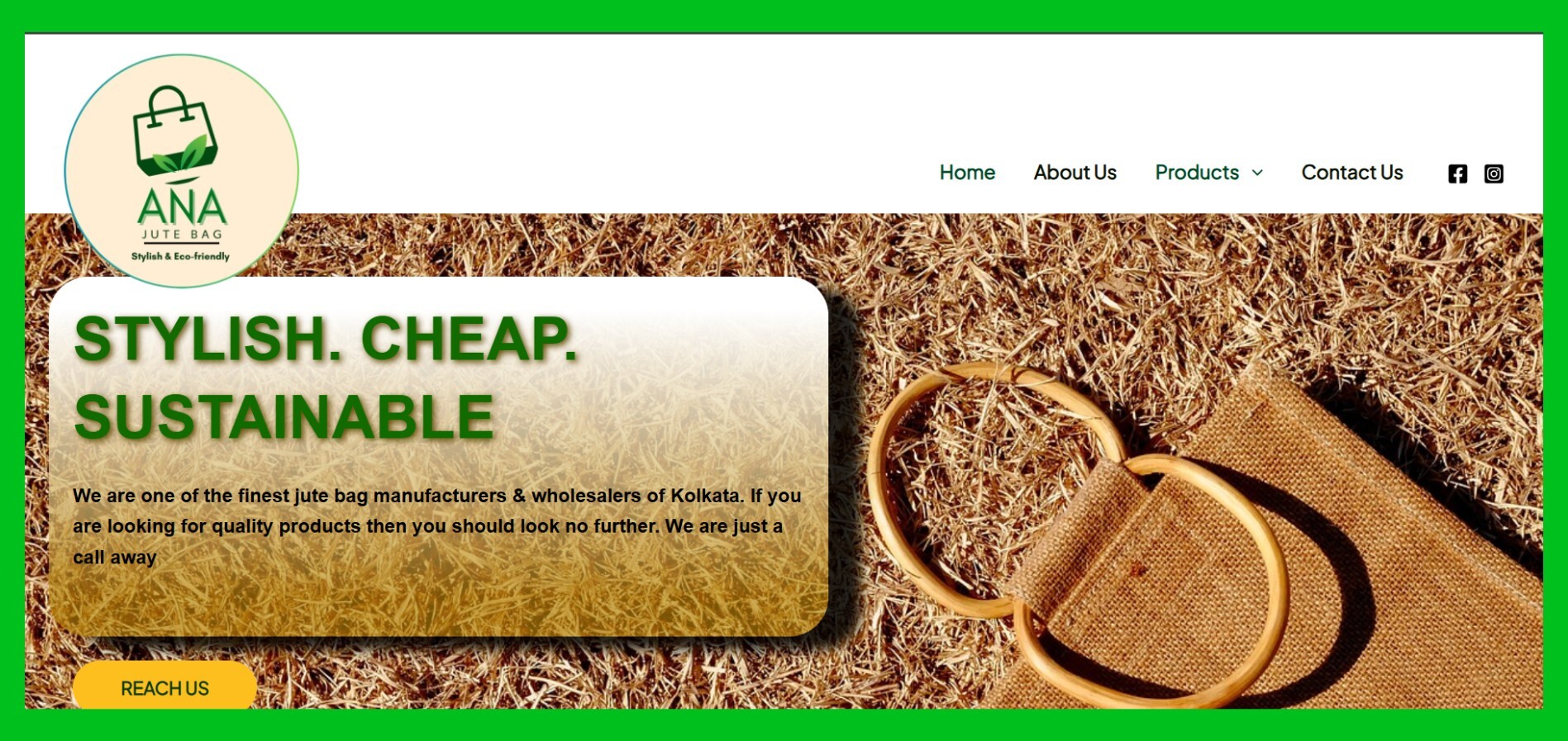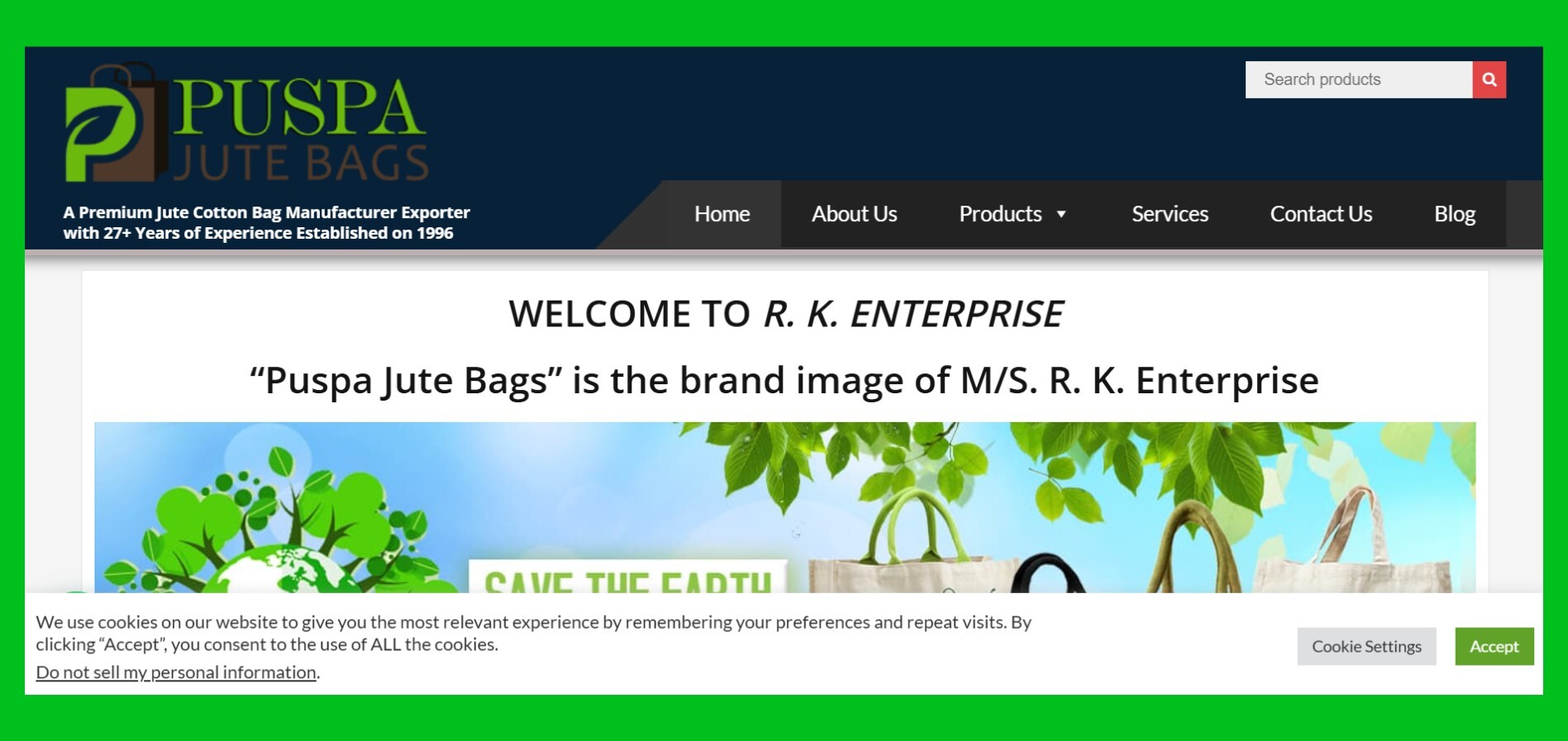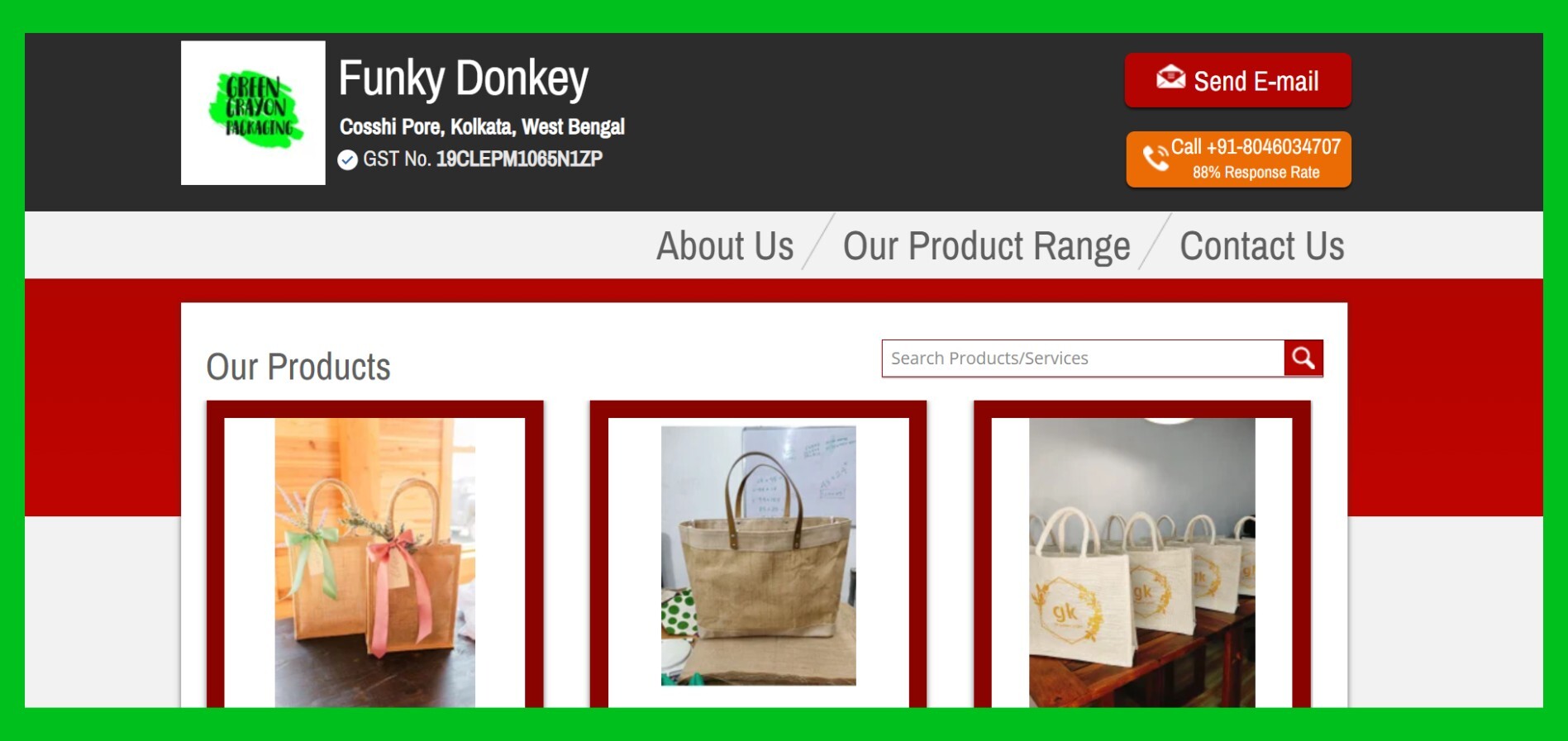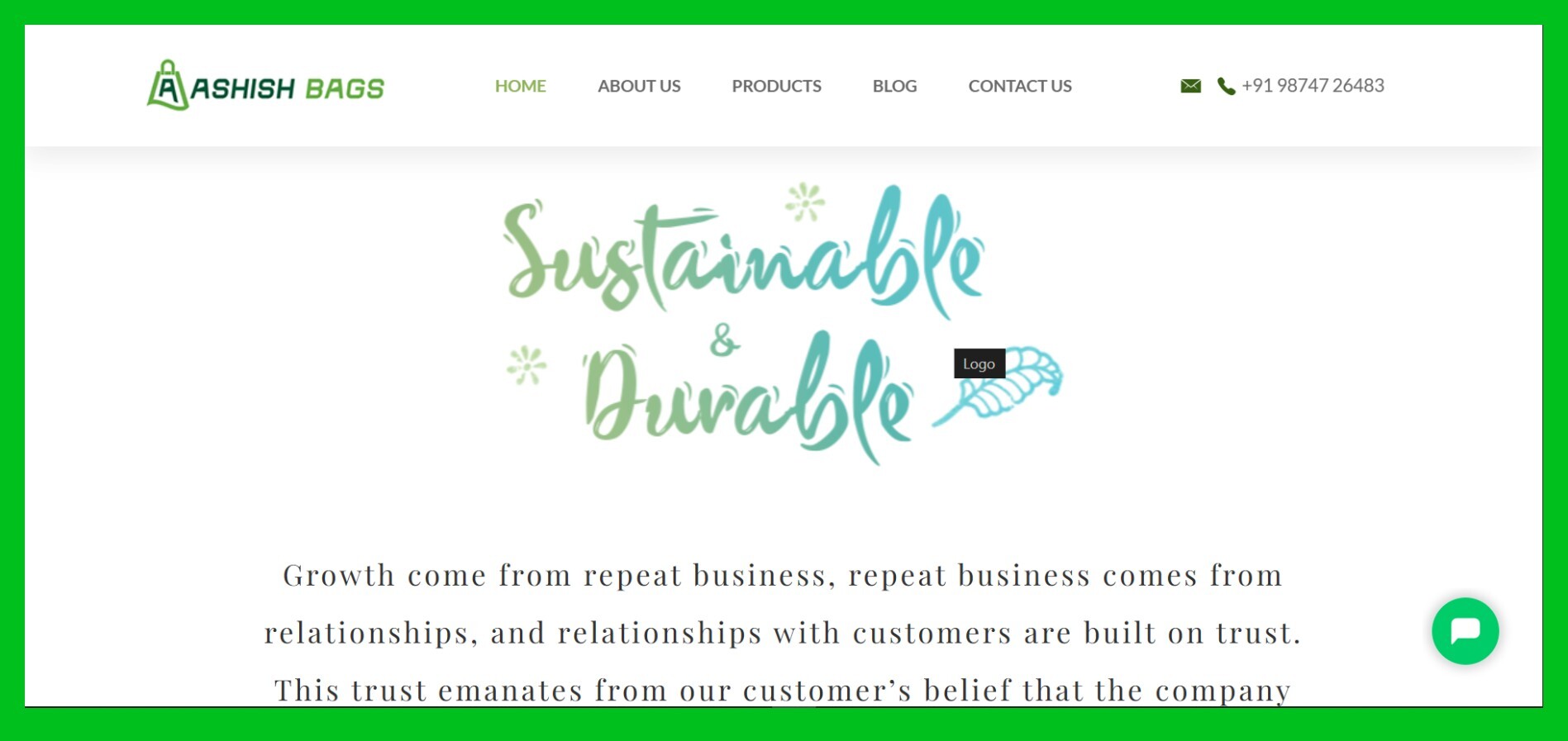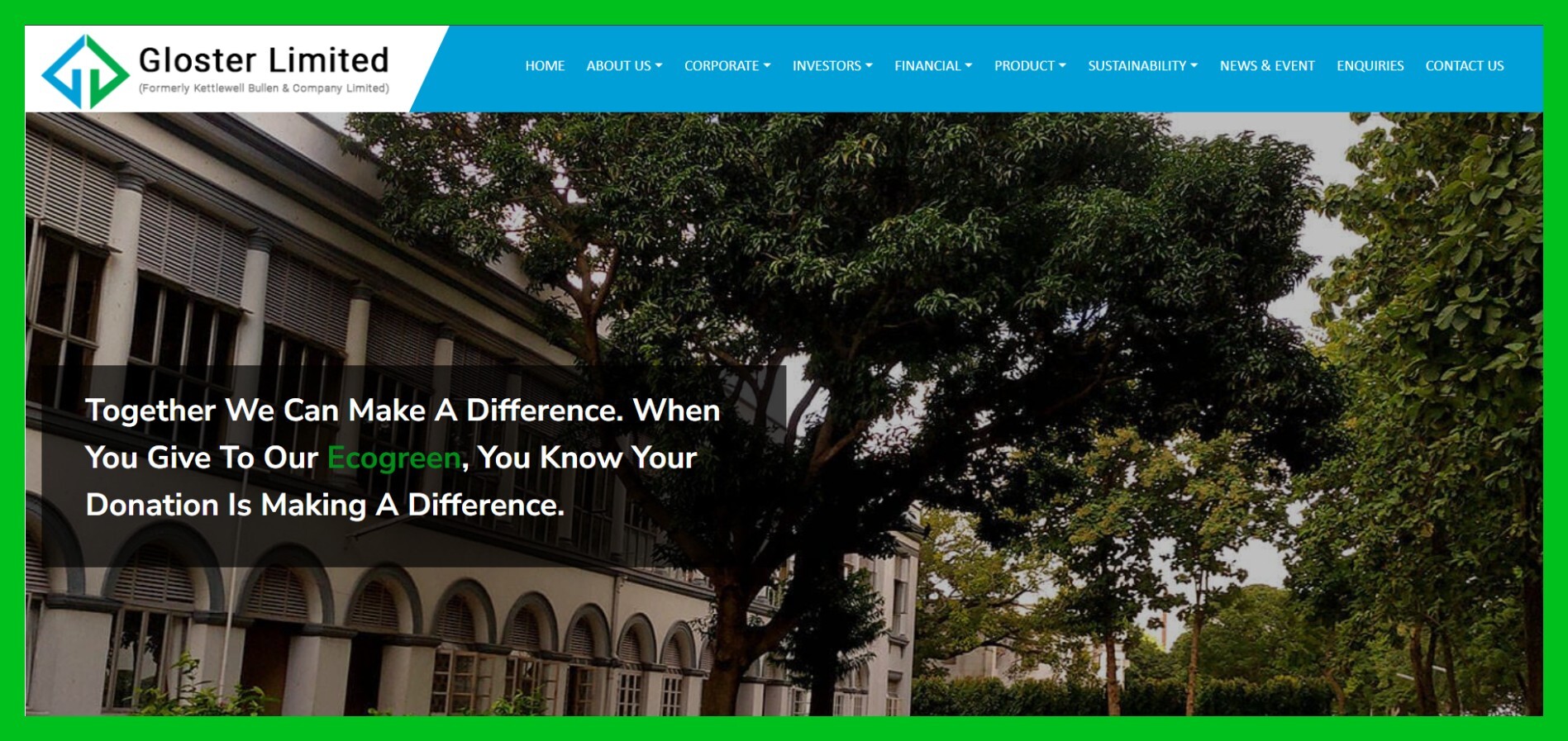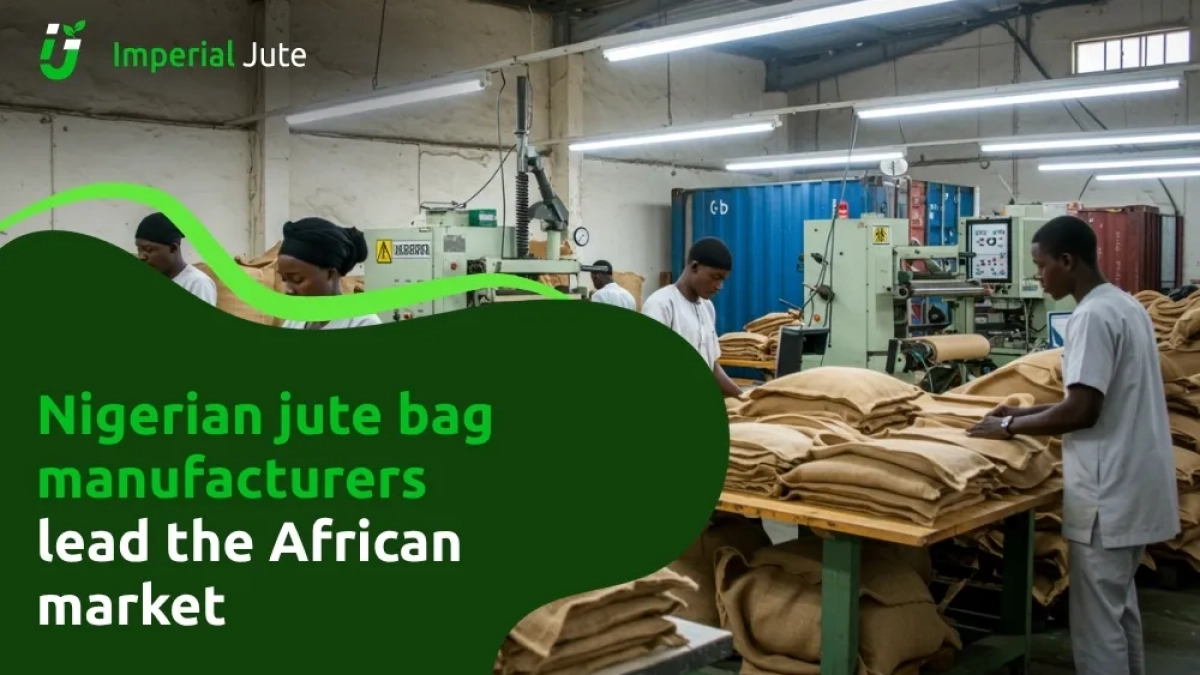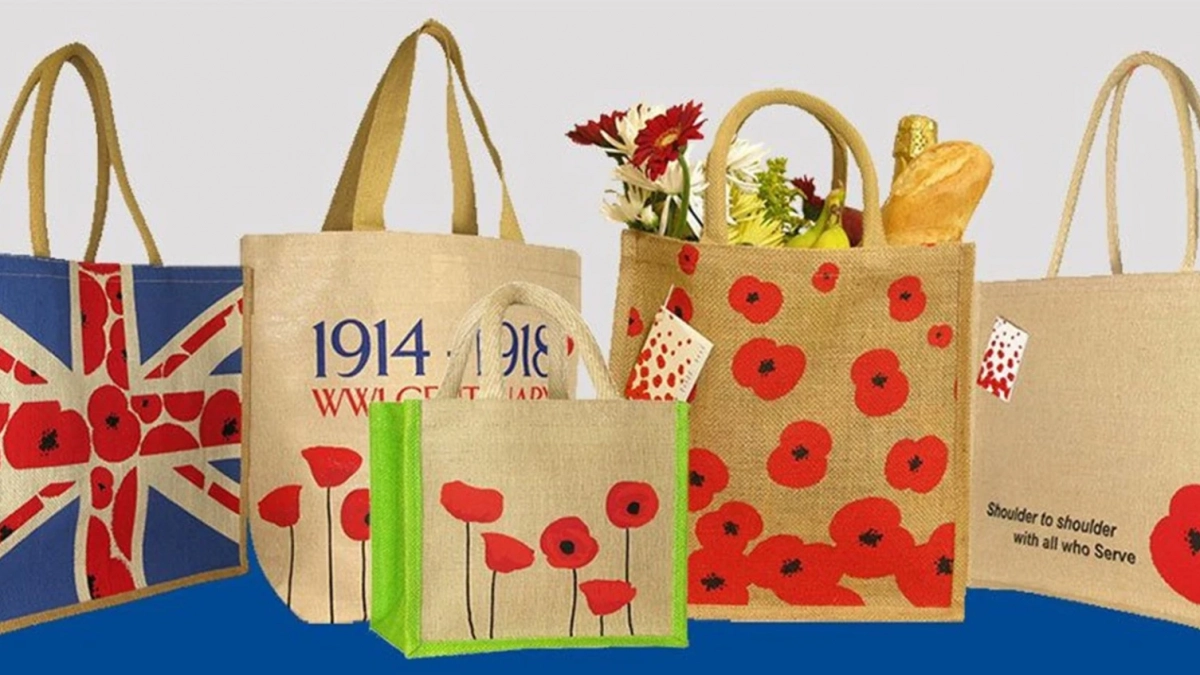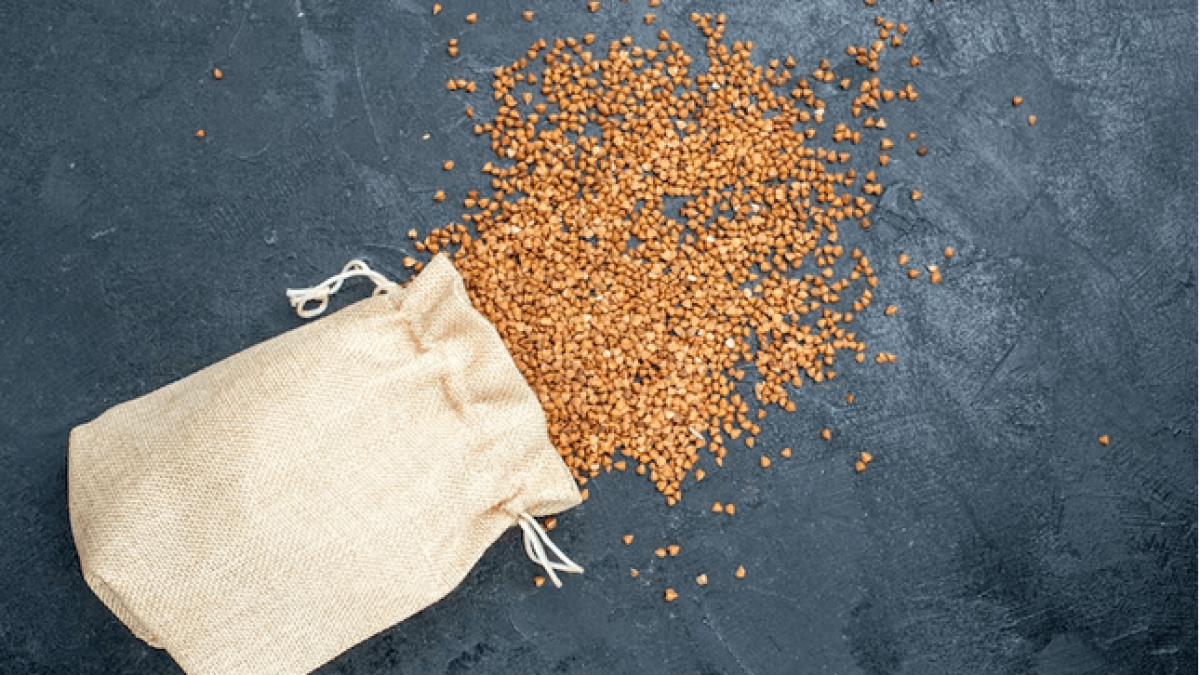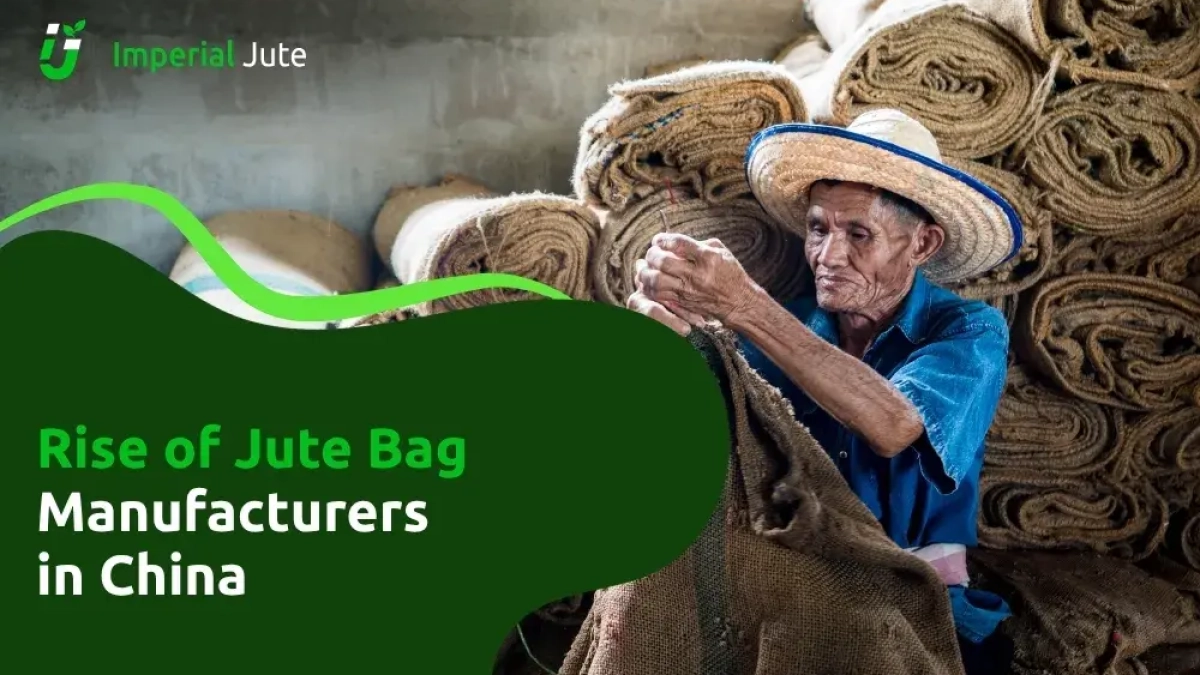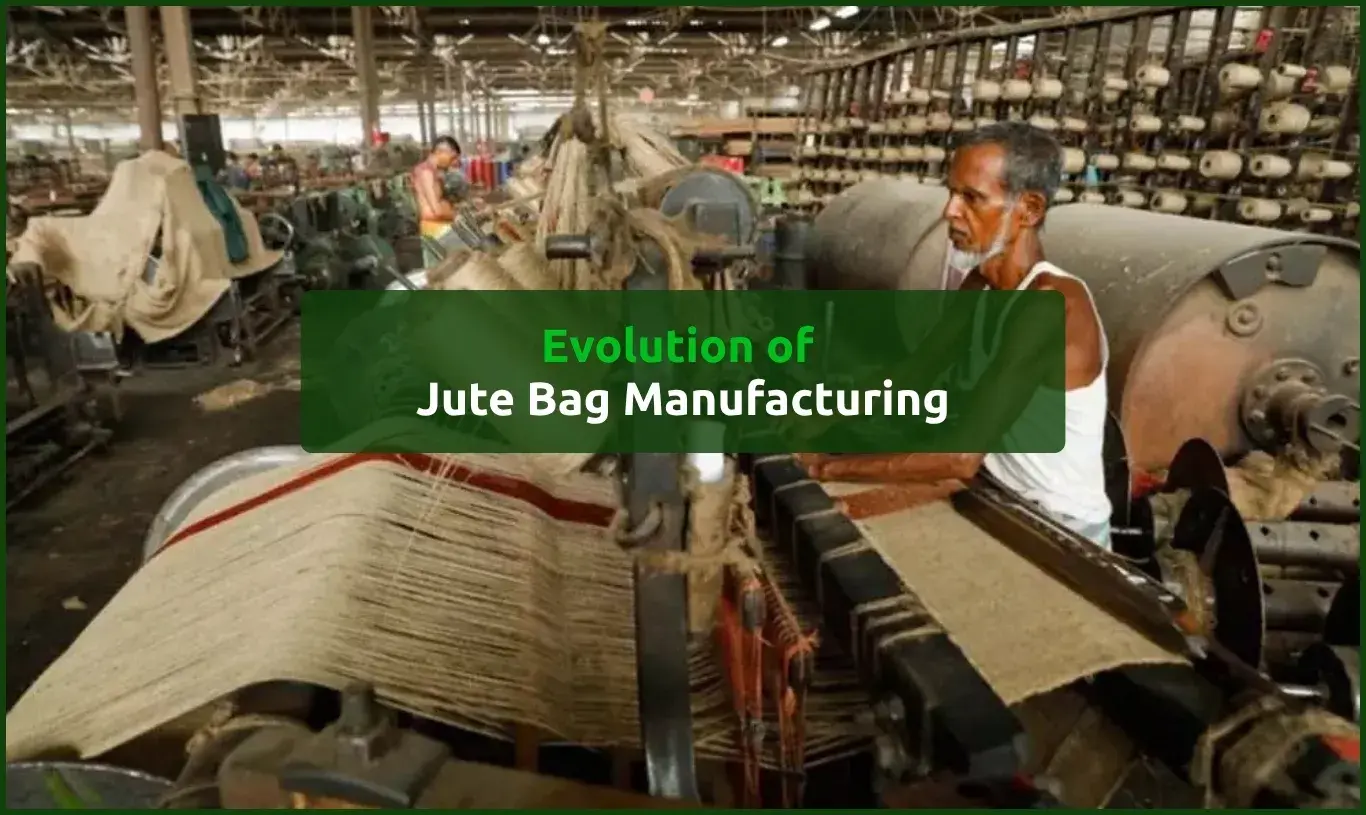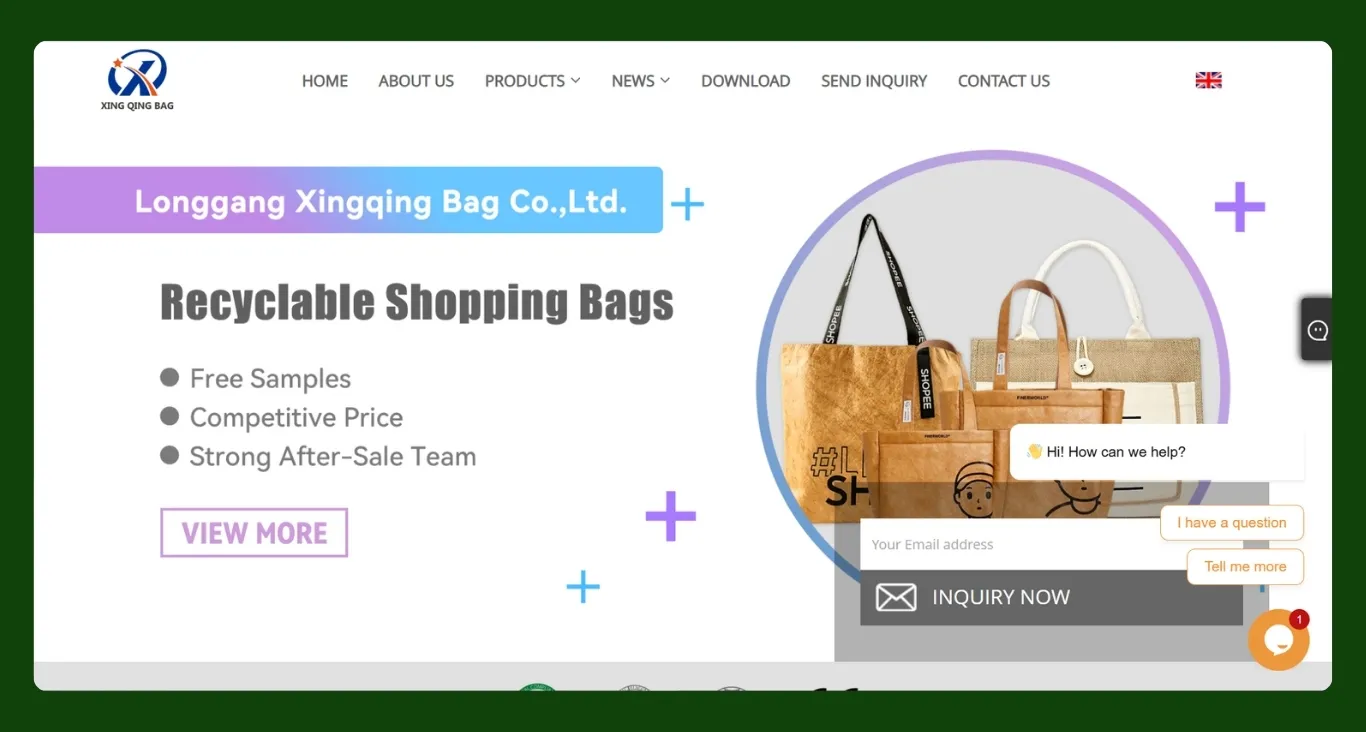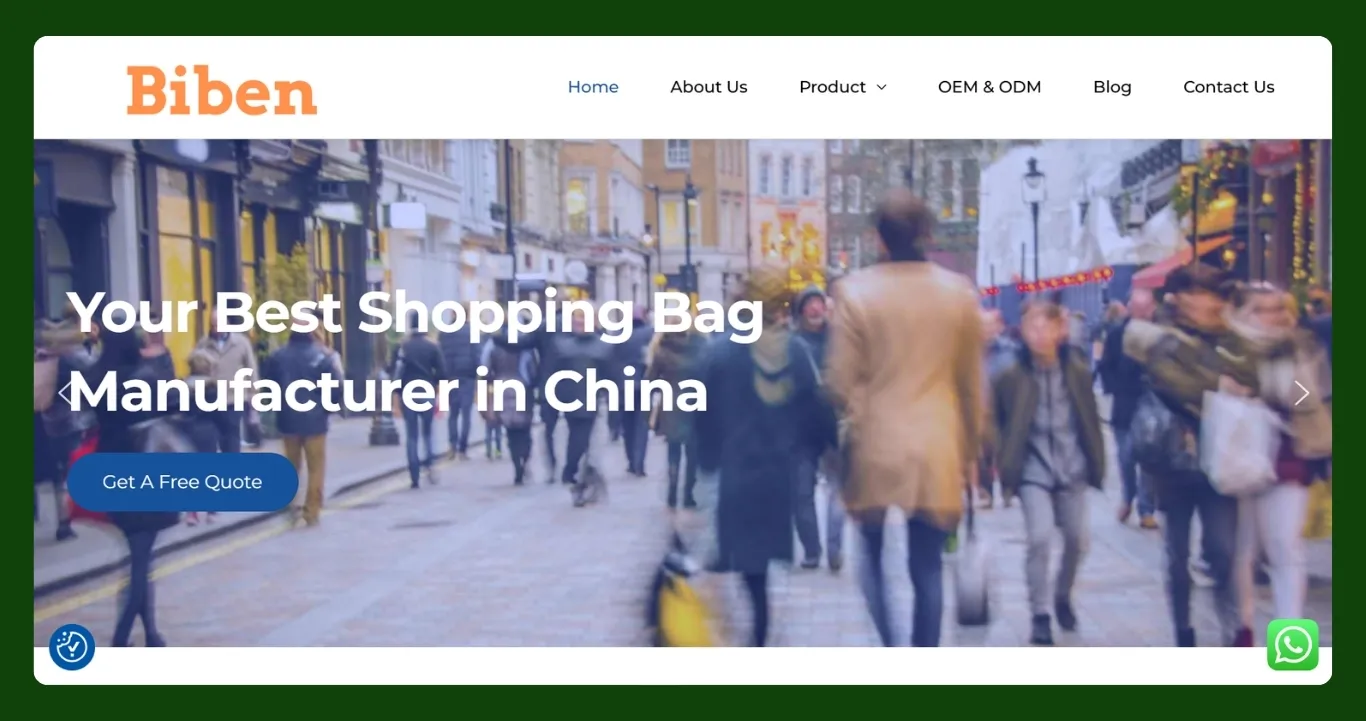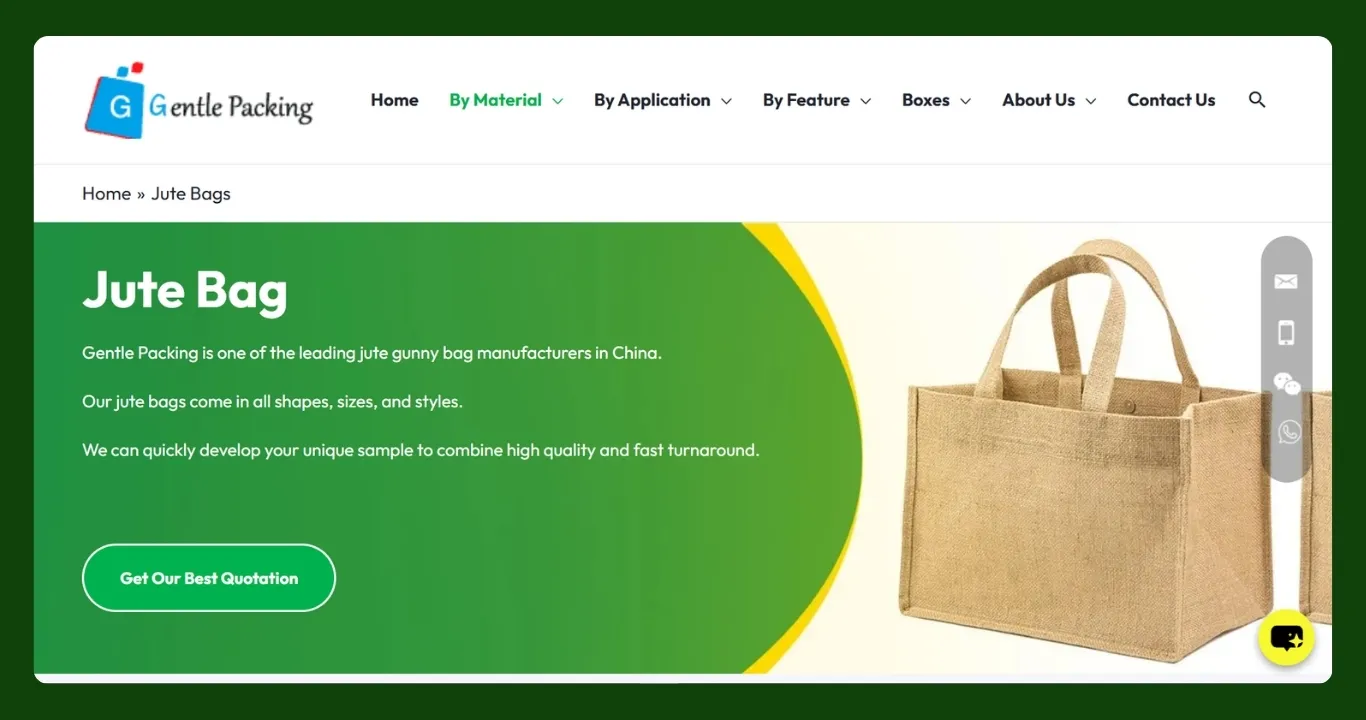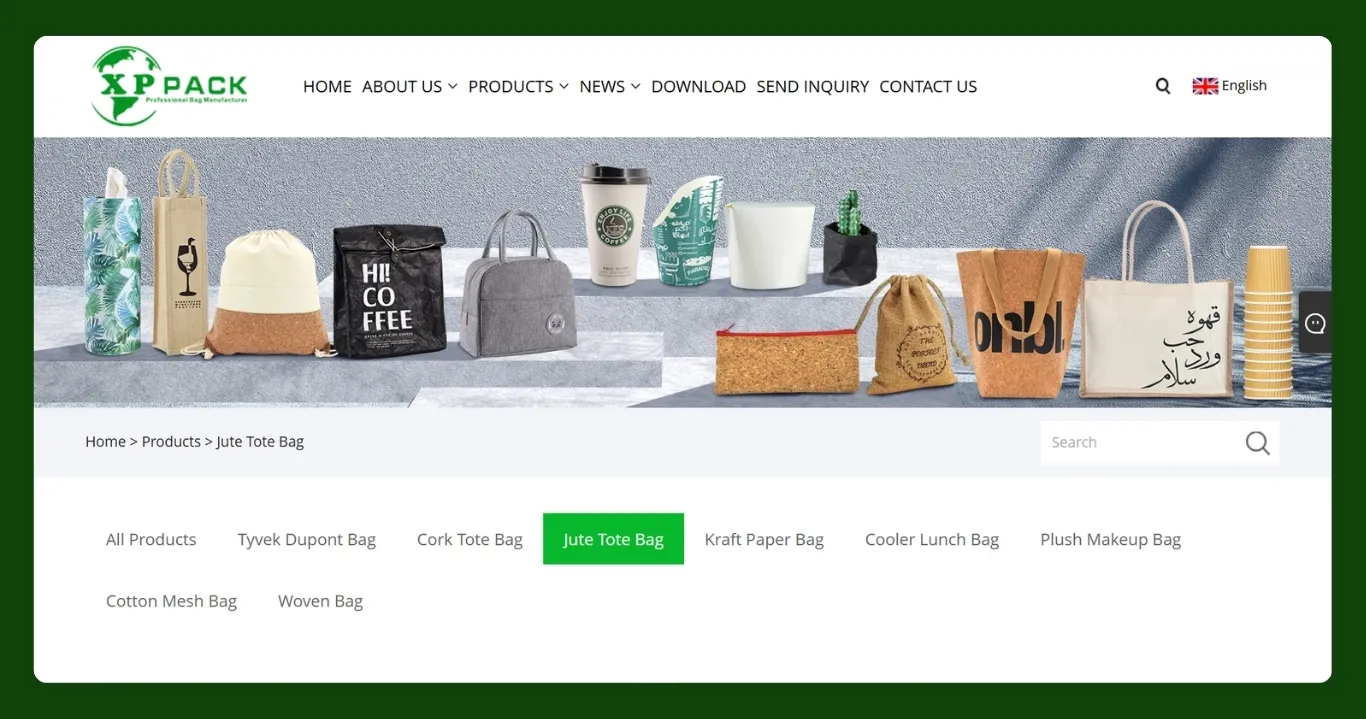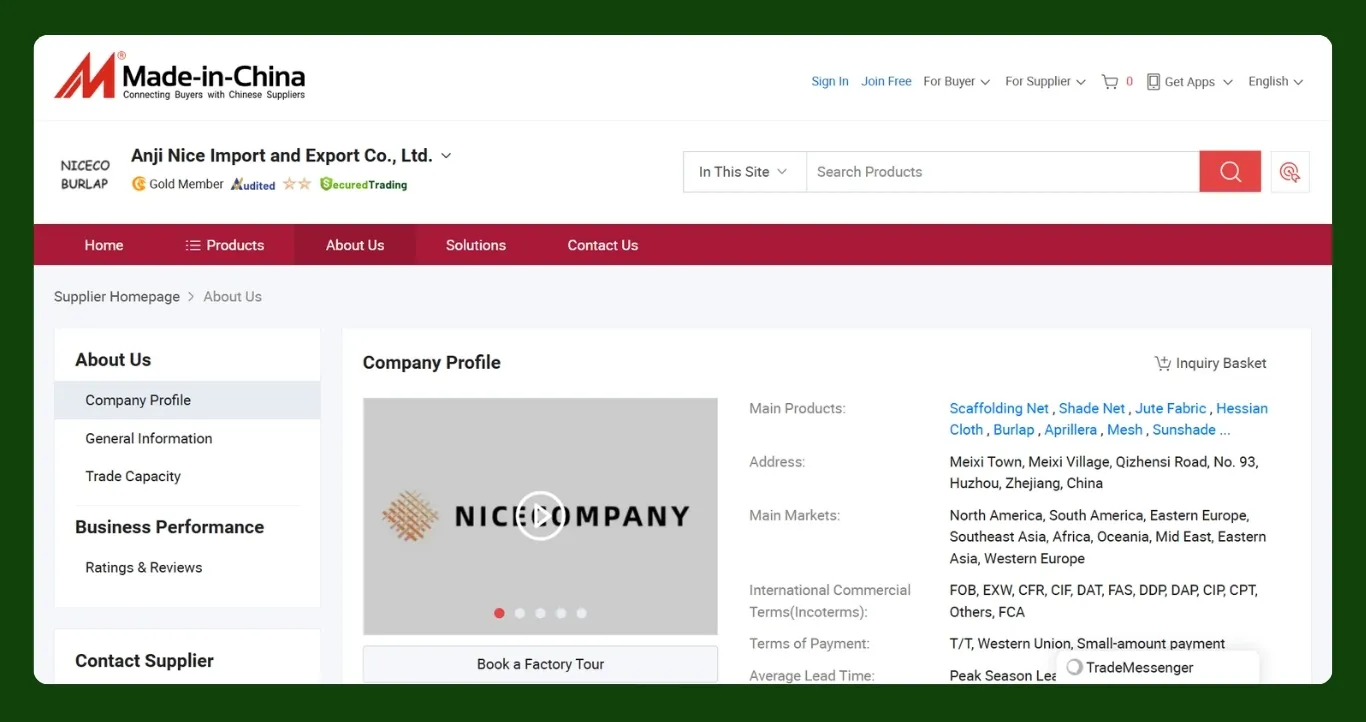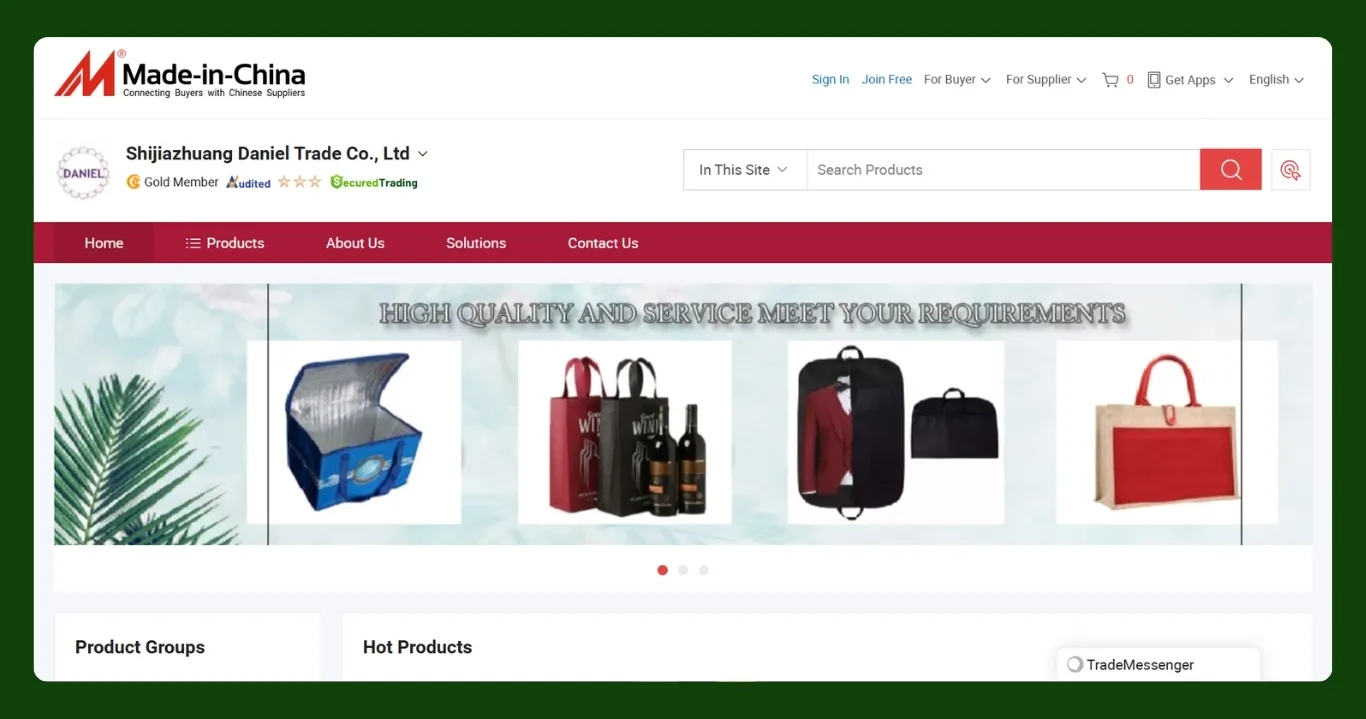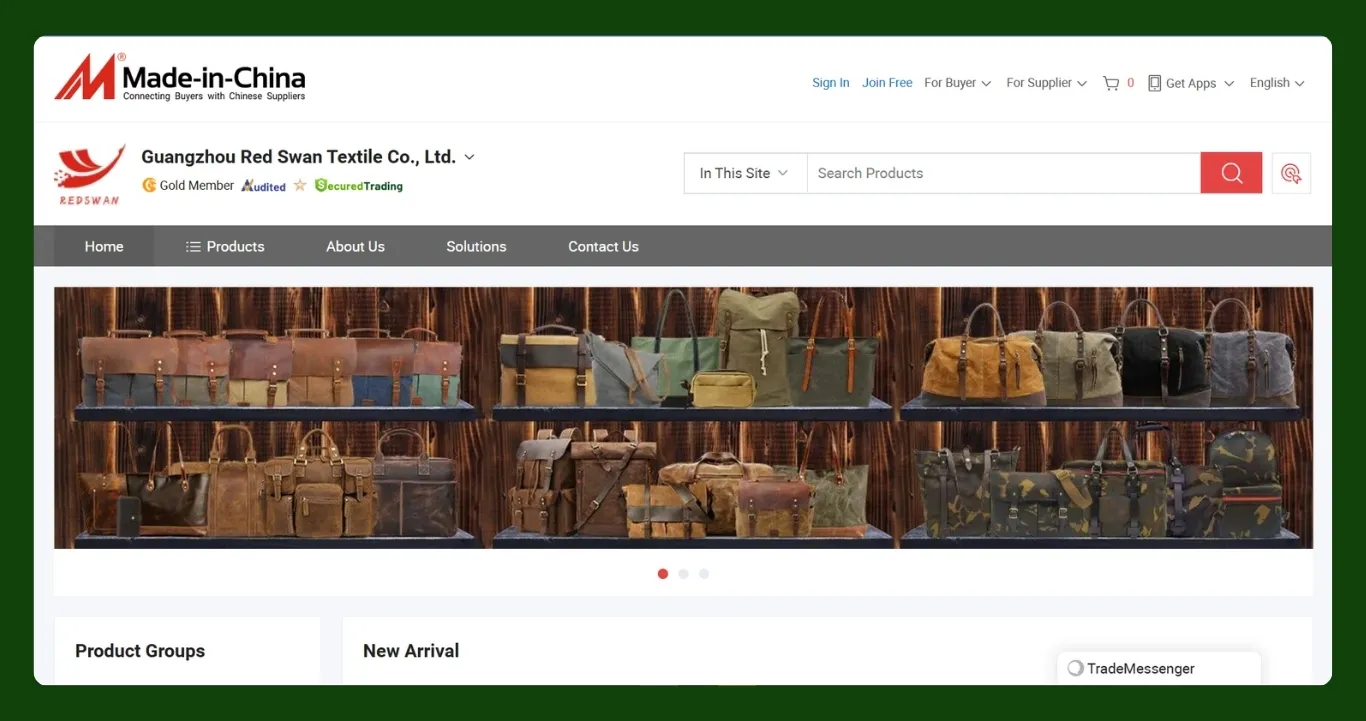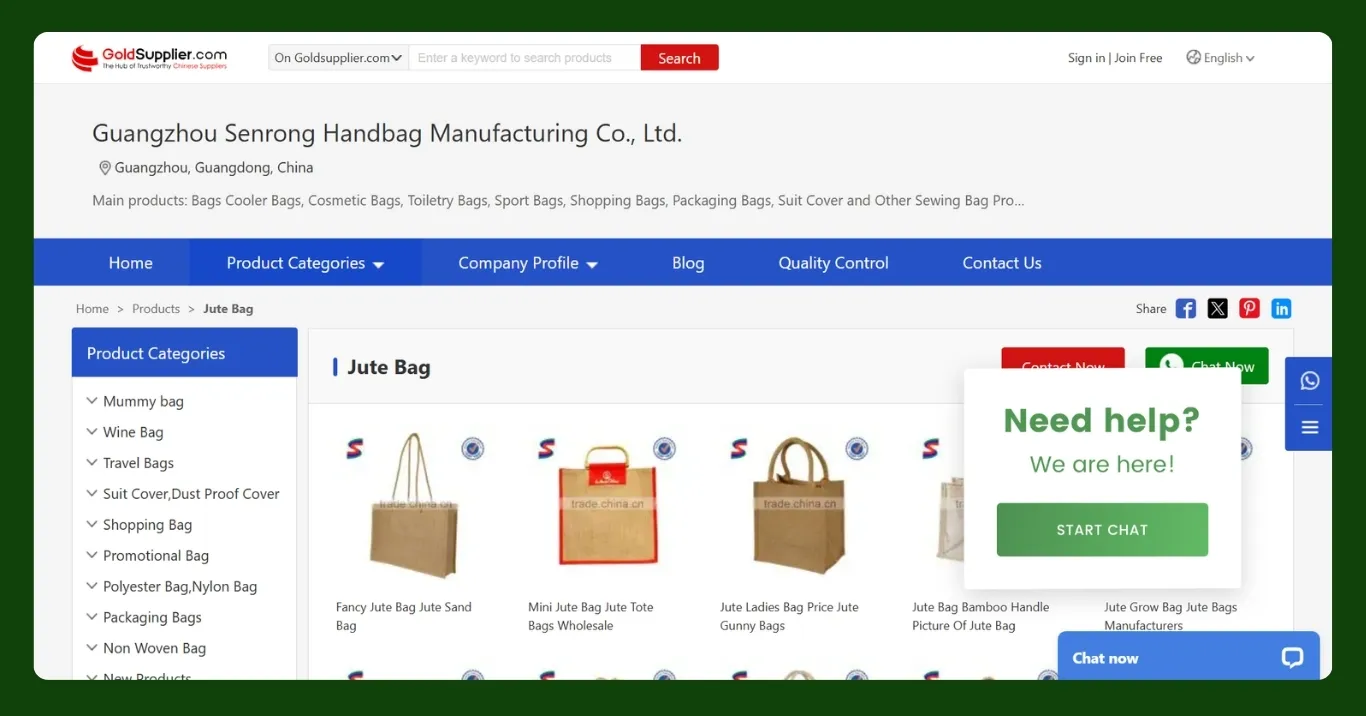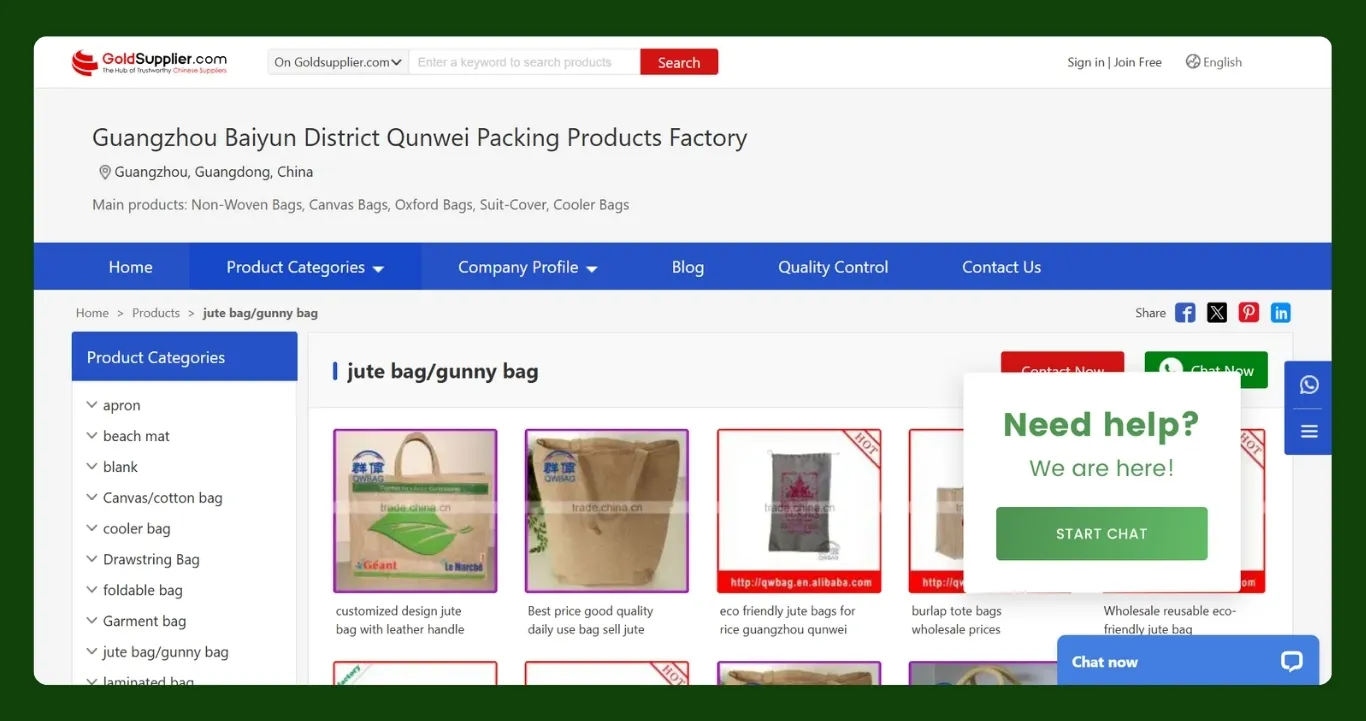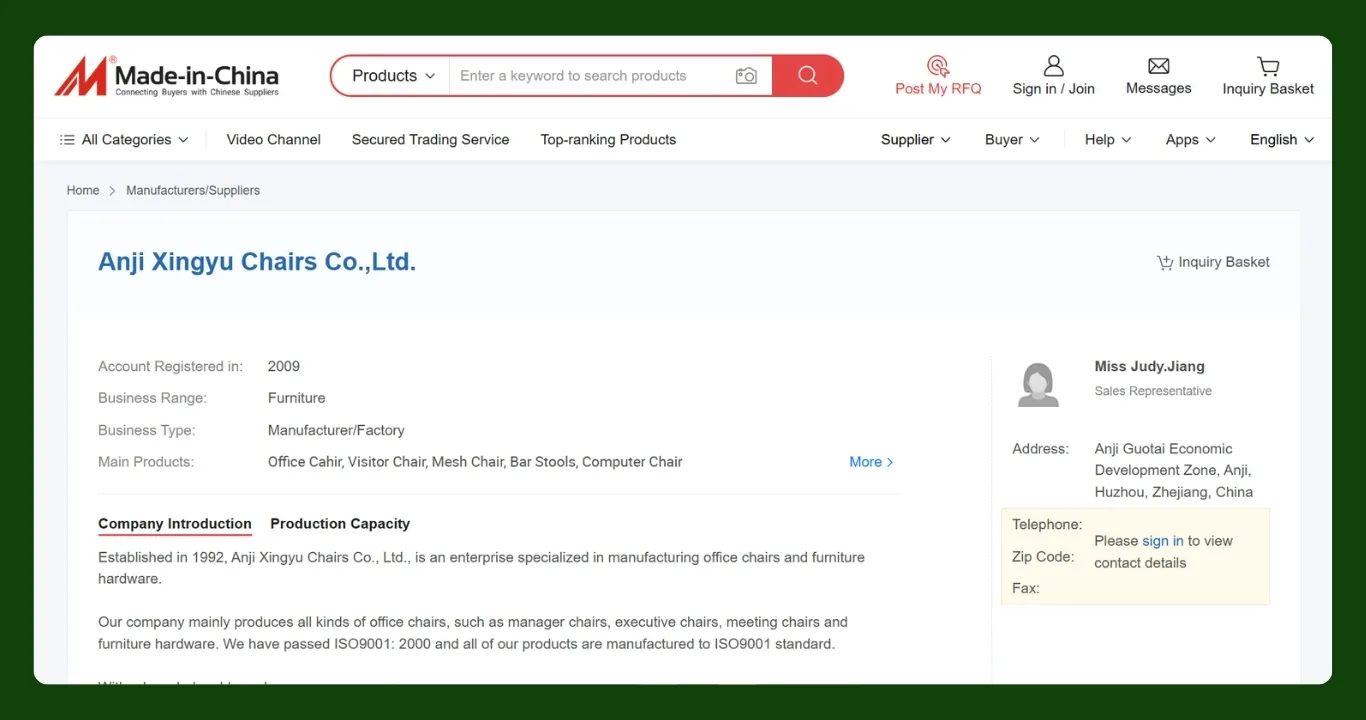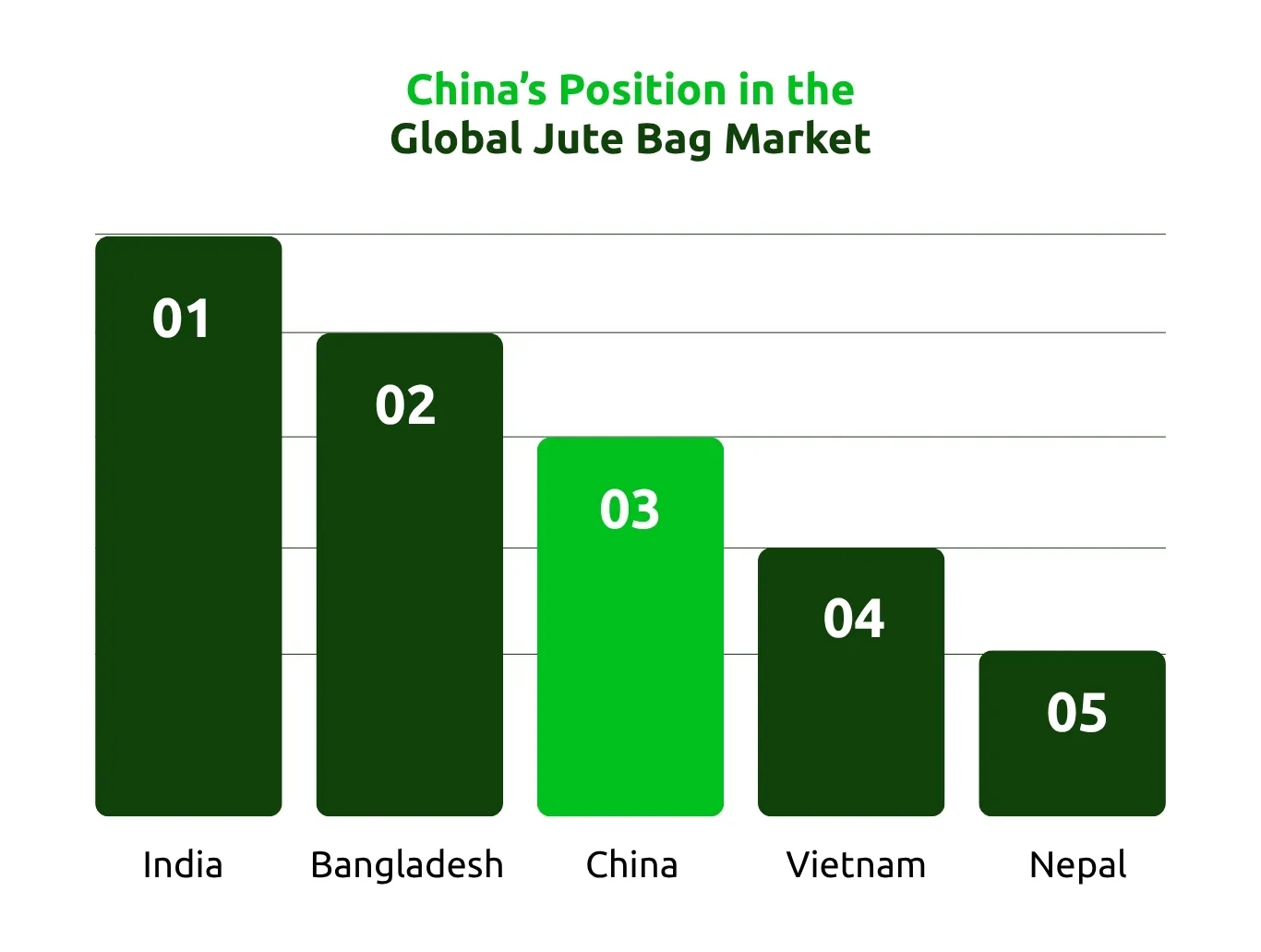The term “Jute Gunny Bag” refers to a coarse fabric sack made from natural jute fibre, originating from an Indo-Aryan word. These bags are crafted using high-quality jute sourced from Bangladesh, a country renowned for its sustainable jute production.
Jute fibres are naturally strong and durable, making them ideal for carrying heavy items. Jute gunny bags are biodegradable and eco-friendly, posing minimal environmental harm compared to plastic alternatives.
These bags are commonly used around the world to store and transport agricultural and industrial products, including grains, rice, potatoes, and sand. They can securely hold between 50 to 100 kilograms, making them suitable for both domestic and export packaging needs.
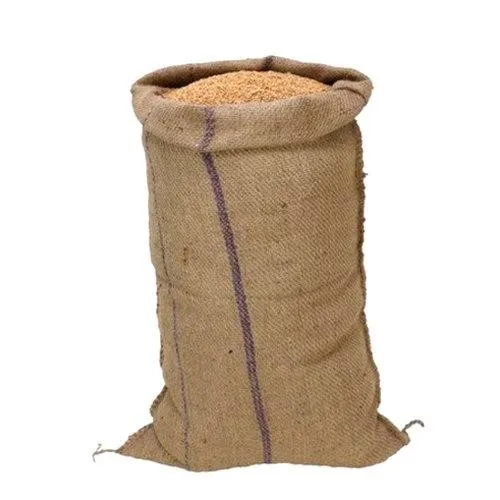
Unlike plastic bags, jute bags are eco-friendly, reusable, and biodegradable. They don’t harm the environment and are trusted for both local use and export packaging.
Understanding the 50 to 100 kg Capacity Range
Not all products require small packaging, for bulk items like grains, seeds, or construction materials, bags that can hold 50 kg, 75 kg, or even 100 kg are needed.
Jute gunny bags are ideal for this. They are strong enough to carry heavy loads, and their breathable fabric helps keep food products fresh during transport. These bags are widely used in:
- Agricultural exports
- Storage warehouses
- Shipping and distribution centres
- Wholesale packaging for grains, spices, animal feed, and more
A single 100 kg jute bag can reduce the need for multiple smaller bags, saving cost and packaging waste.
Quick Facts (Useful Data):
| Feature | Jute Gunny Bags |
| Load Capacity | 50–100 kg |
| Material | 100% natural jute fiber |
| Lifespan | Up to 2–3 years (with reuse) |
| Decomposition Time | Less than 6 months in soil |
| Main Producing Countries | Bangladesh, India |
| Key Uses | Farming, storage, export |
Deep Dive into Features, Benefits, and Use Cases
What Makes a Jute Gunny Bag High Quality?
When you look at jute bags in the market, they may look similar. But the quality can vary a lot. A high-quality jute gunny bag will have:
- Thick GSM (grams per square meter): A higher GSM means stronger fabric. Good quality bags usually have 270–350 GSM.
- Reinforced stitching: Double or triple-stitched edges prevent tearing during heavy use.
- Proper weaving: Tight and even weaving keeps the bag strong and long-lasting.
- Moisture resistance: Some bags come with light lamination to prevent moisture damage.
When buying in bulk for 50 to 100 kg storage, quality matters more than anything. Poor stitching or weak fabric can cause the bags to rip or fail in transit.
Why 50 to 100 kg Storage Capacity Is Ideal for Many Businesses
Jute gunny bags in this size range are designed for industrial and agricultural use. Here’s why this size works well:
- Efficient bulk transport: Carry more product with fewer bags.
- Time-saving: Fewer bags mean faster loading and unloading.
- Space-saving: Stacks neatly in warehouses and trucks.
- Cost-effective: Lower cost per kg of product stored or transported.
For example, a rice exporter in India or a potato distributor in Egypt may prefer 100 kg bags over multiple 25 kg ones. It simplifies logistics.
Top Industries That Use Jute Gunny Bags
These bags are already being used globally in a wide range of sectors:
- Agriculture: For storing and transporting grains, seeds, vegetables, pulses, and spices.
- Fertilizer and Chemical Packaging: Some jute bags have inner linings to handle dry chemicals and fertilizers.
- Construction: Sand, cement, and gravel are packed in heavy-duty jute sacks in some regions.
- Retail Exporters: Businesses exporting to the EU and USA use jute for packaging to meet environmental laws.
- Animal Feed Industry: Animal feed, hay, and raw materials are commonly stored in large-capacity jute sacks.
Other Use Cases of Using Jute Gunny Bags
Gunny bags use for a wide range of purposes. Some of the most common uses include the following:
Packing agricultural products:
The Main Use of jute sacks or jute gunny sack bags is packing agricultural products such as Rice, Wheat, Paddy, Sugar, Tea, Coffee beans, Cocoa beans, Potato, Onions, Peanuts Cereals, Cashew nuts, Groundnuts, Peanuts, Hazelnuts, Cotton, Palm Kernels, Gum Arabic, Maize, Copra, Lentils, Cement, Black Pepper, Seeds, Grains, Areca nuts, Cardamom, Cinnamon Flour, Chemicals, Fertilizers and many other foods and general items. These gunny sack bags are also used for dairy, poultry, and cattle feed packing. Apart from the products mentioned above, our gunny bags are good enough to pack cement, sugar, and other bulk materials.
Transportation:
One of the most significant uses of these bags is for transportation. It is used to ship perishable food products such as potatoes and onions as they seldom perish when stored in these bags. Gunny bags are made of breathable fabric, which increases its usage for different purposes.
Cover Shrubs And Trees:
These gunny sack bags are also used to cover the exposed roots of trees and shrubs during the process of transportation. Gunny bag prevents spoilage of plants and trees for a more extended period of time.
Soil Erosion:
It is used in various areas to prevent soil erosion as these bags are naturally biodegradable.
It is also used in schools for sack racing, one of the most popular games in schools. Today these bags have replaced the conventional form of grocery packaging. It is also used for art as people use it as a canvas for painting. It also finds usage as wall papers in homes and restaurants for a rustic appeal.
Gunny bag is one of the most versatile commodities ingrained with a vast number of beneficial features. It is breathable, affordable, and recyclable. Different types of sacks can be bought from reputed online stores at reasonable price rates.
The gunny bags are the consumer’s specifications. Each consumer has different requirements in terms of the size of gunny sacks delivered per the specifications provided. Gunny bags are known to carry significant amounts of weight, often ranging from 50 to 100 kgs.
Types of Jute Gunny Bags – Description, Specifications & Uses
Jute gunny bags are known for their strength, breathability, and eco-friendliness. They’re widely used to store and transport bulk goods like food grains, vegetables, cement, and seeds. But not all jute bags are the same. Depending on the weave, treatment, and finishing, each bag type serves a specific purpose.
Below, we explore the 7 most widely used types of jute gunny bags with detailed descriptions, technical specifications, and real-world applications.
1. Plain Jute Gunny Bag
Plain jute gunny bags are the most common and widely used type in the market. These bags are made from coarse, natural jute fabric woven in a basic plain pattern. They are known for their breathability, which allows air to circulate and prevents spoilage of stored items — especially food grains and vegetables. These bags are also biodegradable and reusable, making them an environmentally responsible packaging option. Due to their simplicity, they are economical and easily available in different sizes and thicknesses.
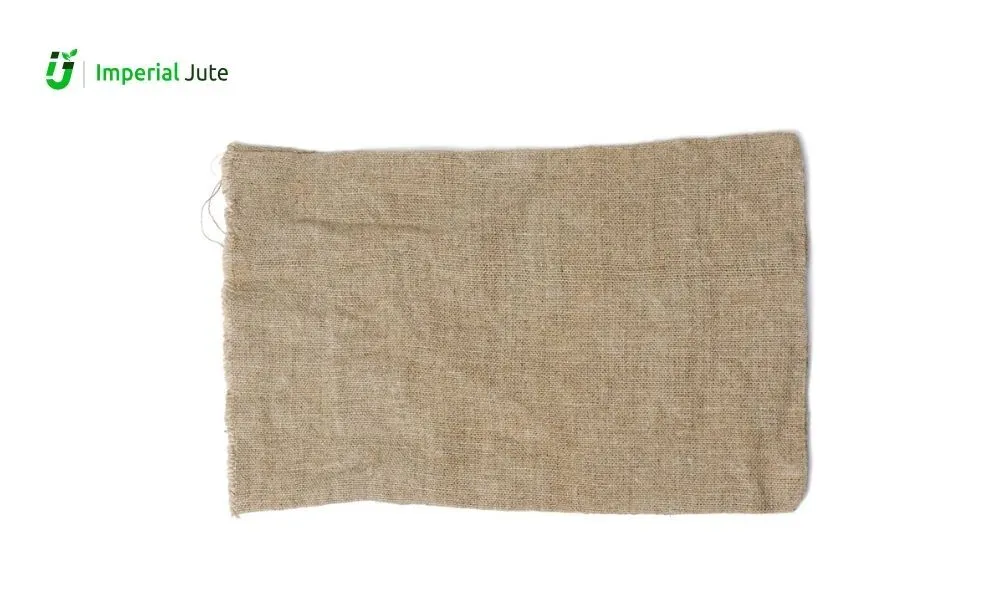
Specifications:
- Material: 100% natural raw jute
- Weave: 6×7 or 8×9 picks per inch
- Size: 44″ × 26″ or 40″ × 24″
- Capacity: 50–100 kg
- Weight per Bag: ~900g to 1.2 kg
- Finish: Hemmed top, double-stitched bottom
Uses:
- Grain storage (rice, wheat, lentils)
- Packaging of vegetables (onions, potatoes)
- Agricultural markets and local distribution
2. B-Twill Jute Gunny Bag
B-Twill gunny bags are specially designed for heavy-duty applications. They are made from jute fabric with a twill weave, which increases the density and strength of the bag. These bags are standard for storing 100 kg of food grains in large-scale operations, particularly in government procurement programs in countries like Bangladesh and India. They are engineered for durability, stackability, and resistance to tearing under heavy loads.
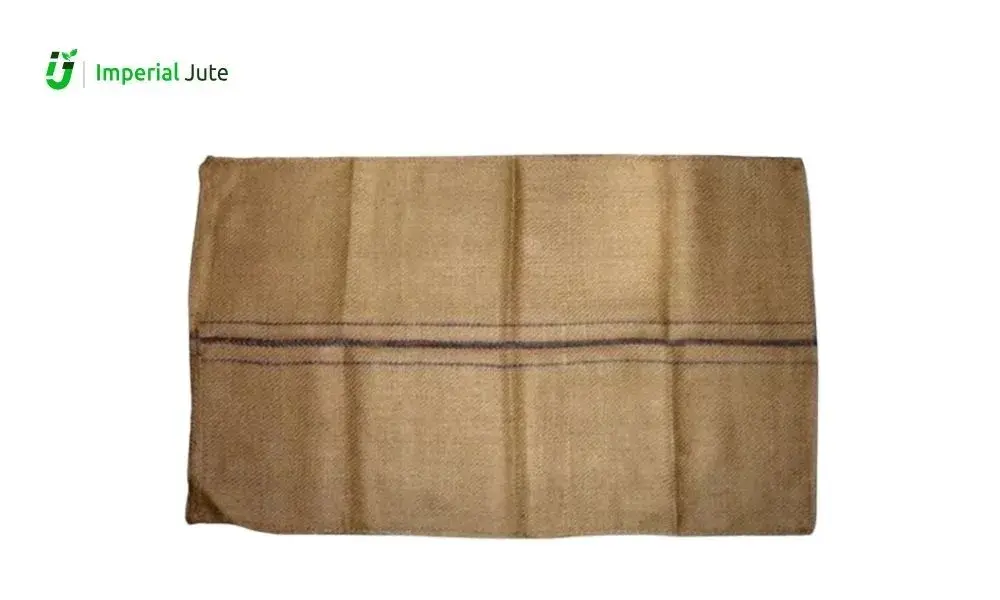
Specifications:
- Material: B-Twill jute fabric
- Weave: 11×12 picks per inch
- Size: 44″ × 26″
- Capacity: 100 kg
- Weight per Bag: Around 1.5 kg
- Finish: Strong stitching for bulk handling
Uses:
- Bulk grain storage (wheat, paddy, maize)
- Warehouse packaging for government and NGOs
- Export of food grains in large quantities
3. Double Warp (D.W.) Jute Gunny Bag
Double Warp gunny bags are a reinforced version of traditional jute sacks. They are made using two sets of warp yarns, giving them a more compact structure and higher tensile strength. These bags are ideal for industrial materials and high-density products that require added durability during transit. They are often used in export markets where the packaging needs to withstand rough handling and long transportation.
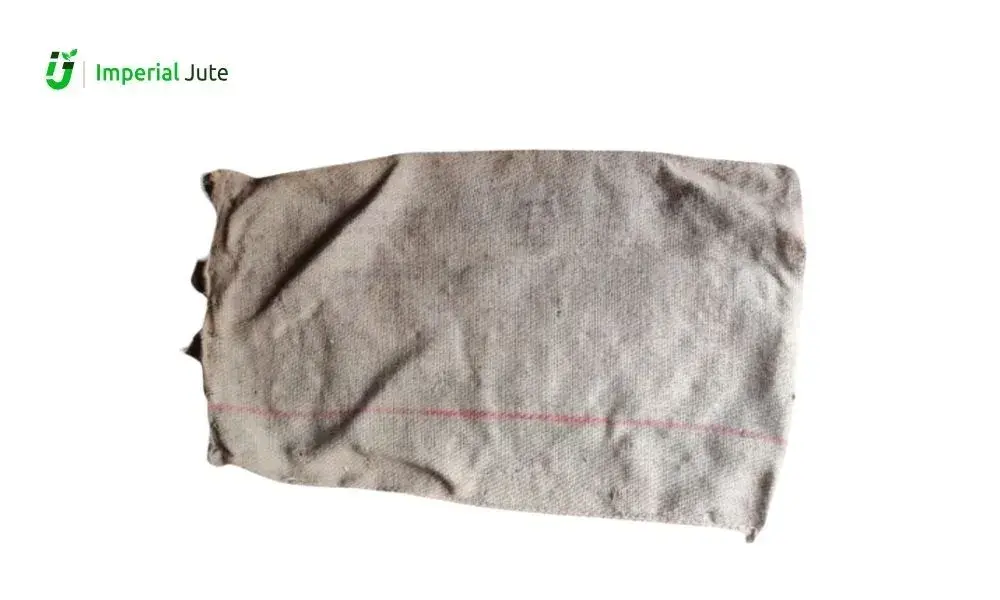
Specifications:
- Material: Double warp jute
- Weave: Dense, reinforced for strength
- Size: Typically 40″ × 28″
- Capacity: 80–100 kg
- Strength: Extra load-bearing capacity
Uses:
- Sugar, cement, fertilizers
- Bulk seed transport
- Industrial goods in manufacturing sectors
4. Hessian Jute Gunny Bag
Hessian gunny bags are made from a finer, more loosely woven jute fabric known as hessian cloth. They are lighter and softer than standard gunny bags and are typically used for lighter-weight goods or decorative purposes. These bags have gained popularity in specialty exports, eco-conscious retail, and gift packaging because of their rustic appearance and flexibility. Hessian bags can also be dyed or printed, making them customizable for branding or artistic packaging.
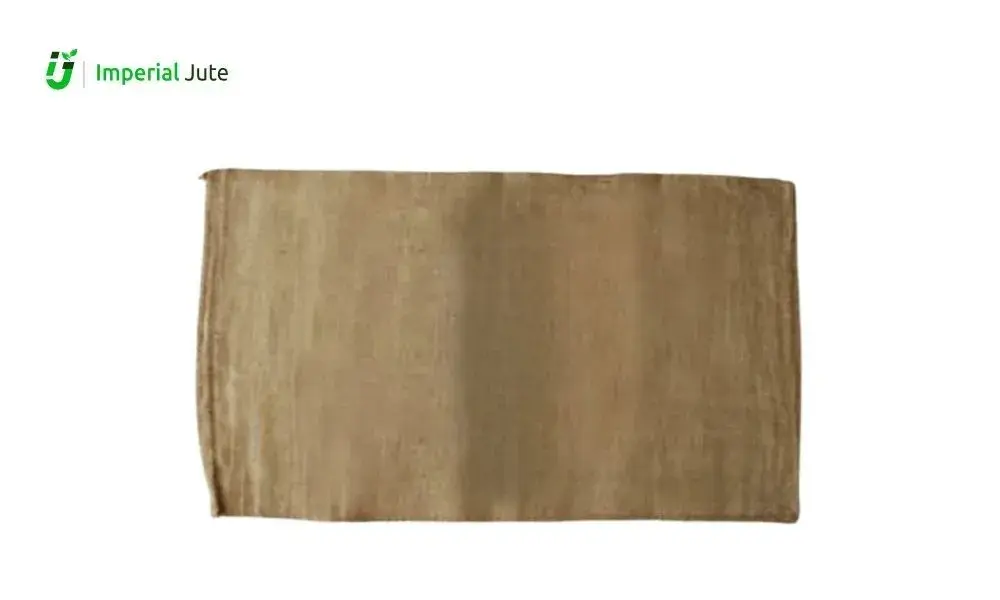
Specifications:
- Material: Fine hessian (soft jute cloth)
- Weight per Bag: 400–700 grams
- Size: 36″ × 24″ or custom
- Capacity: 10–50 kg
- Optional Features: Drawstrings, colored fabric, custom printing
Uses:
- Coffee, cocoa, and dry spices
- Gift packaging and event décor
- Eco-friendly retail or craft packaging
5. Laminated Jute Gunny Bag
Laminated jute bags are enhanced with an internal plastic film layer made from polyethylene (PE) or polypropylene (PP). This coating gives them water resistance while retaining the external jute texture. These bags are designed to protect the contents from moisture, dust, and spillage, which makes them ideal for packaging sensitive or powdered materials. Although they contain a thin plastic layer, they are still more eco-conscious than fully synthetic bags due to their jute base.
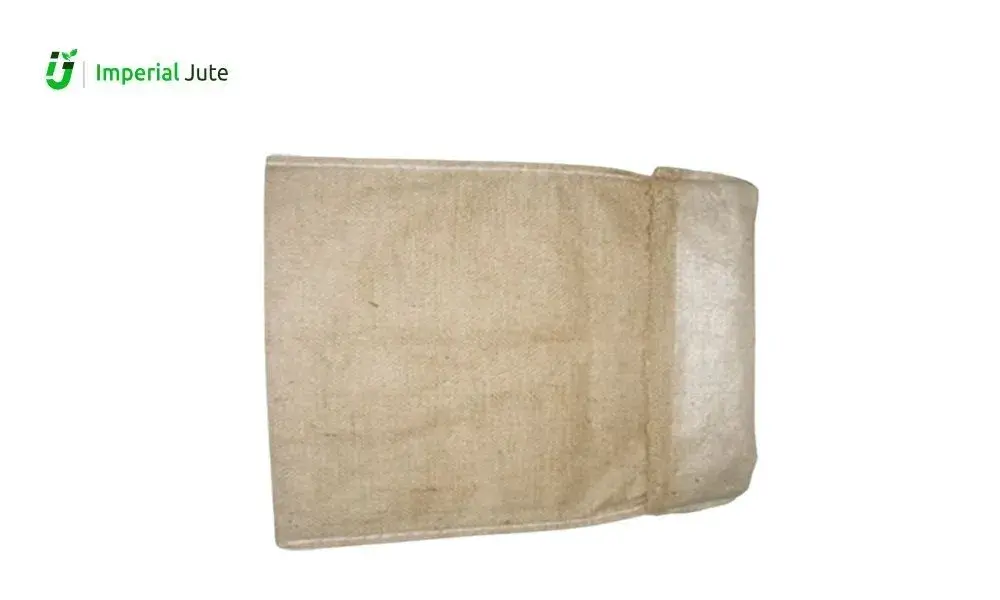
Specifications:
- Material: Jute with inner PE/PP lamination
- Size: 40″ × 26″ or customizable
- Capacity: 25–100 kg
- Finish: Moisture-resistant interior, breathable exterior
- Add-ons: UV protection (optional)
Uses:
- Sugar, salt, cement, fertilizers
- Chemical and powder-based materials
- Export packing for damp environments
6. Food-Grade Jute Gunny Bag
These are specially processed jute bags designed to store edible items safely. Food-grade gunny bags are free from oil, grease, or harmful dyes, ensuring no contamination. They are often used in the export of organic food items, especially to countries with strict hygiene and food packaging regulations. These bags may also be treated or fumigated to meet the specific health and safety standards of different global markets.
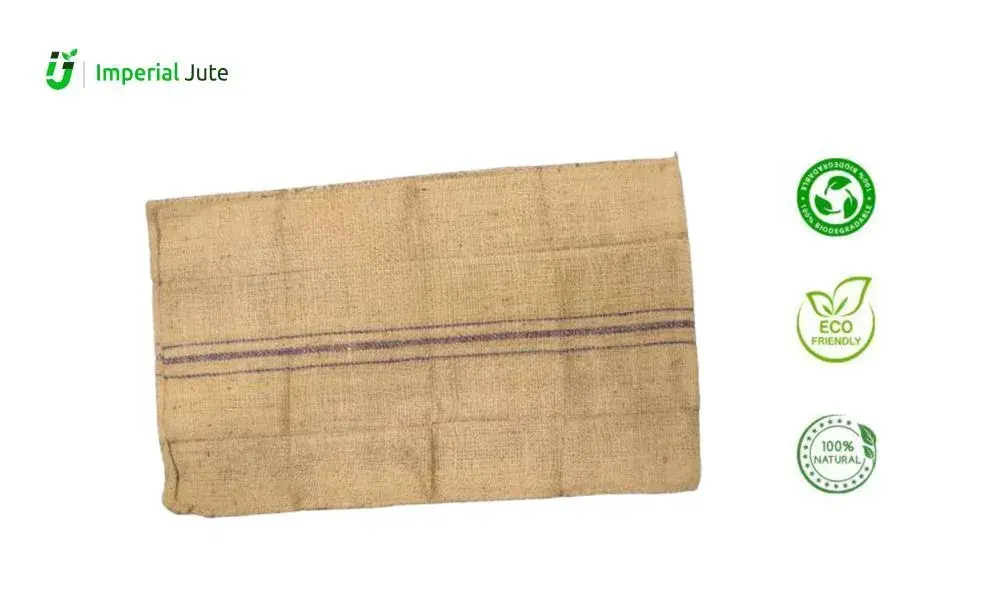
Specifications:
- Material: Oil-free, chemical-free jute
- Capacity: 25–100 kg
- Compliance: Food safety and export standards
- Print: Safe, eco-friendly ink
- Optional: Heat treatment or fumigation for pest control
Uses:
- Organic rice, lentils, spices
- Tea, nuts, dried herbs
- Export-grade food packaging
7. Printed Jute Gunny Bag
Printed gunny bags offer all the functional benefits of jute with added visual identity. Whether it’s your company logo, product information, barcodes, or export details, these bags can be customized through screen or flexo printing. Printing helps brands maintain visibility and also ensures clear labeling for transport or compliance. Depending on the product and packaging requirements, these bags can be made from plain, B-twill, or hessian fabric.
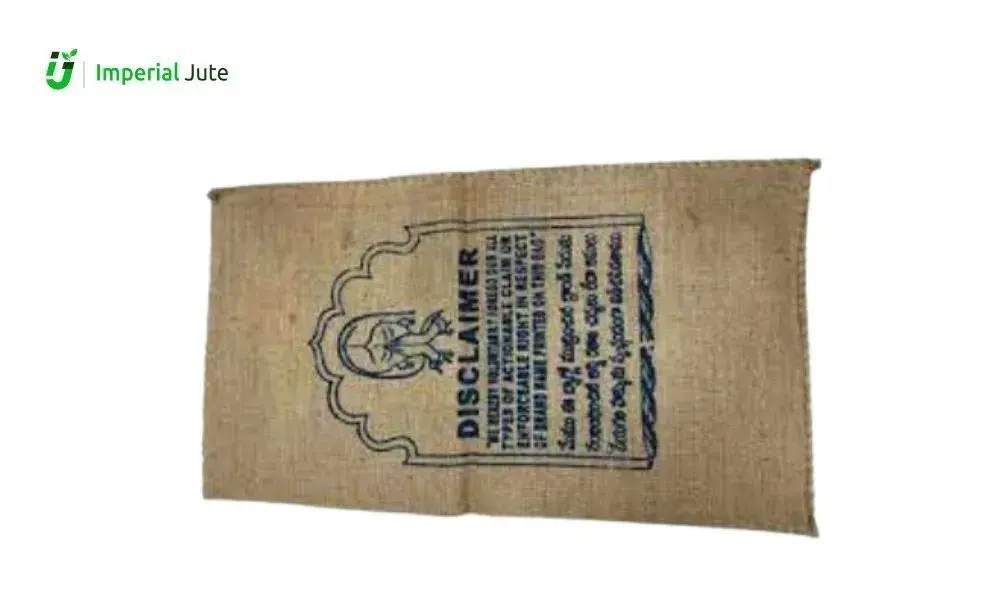
Specifications:
- Material: Any jute type (plain, twill, or hessian)
- Capacity: 10–100 kg
- Printing Method: Screen or flexo printing
- Ink: Eco-safe, food-compliant if needed
- MOQ: 500–1000 pieces for printed orders
Uses:
- Wholesale and B2B packaging with logos
- Branding for exports and retail
- Instructional labels or traceability
Comparing Materials, Choosing Suppliers, and Why Bangladesh Leads the Jute Market
Jute vs Other Common Bag Materials
Many businesses still use plastic, cotton, paper, or synthetic fiber bags. But each material has pros and cons. Let’s compare jute bags with others, especially for heavy-duty storage of 50 to 100 kg.
| Feature / Material | Jute Gunny Bags | Plastic (PP/HDPE) | Cotton Bags | Paper Sacks |
| Eco-Friendly | ✅ 100% biodegradable | ❌ Non-biodegradable | ✅ Biodegradable | ✅ Biodegradable |
| Weight Capacity | ✅ 50–100 kg with ease | ✅ Up to 100 kg (with cost) | ❌ Mostly under 25 kg | ❌ Weak for heavy use |
| Breathability | ✅ Allows air flow | ❌ Traps moisture | ✅ Good | ✅ But low durability |
| Cost Efficiency | ✅ Affordable in bulk | ✅ Cheap short-term | ❌ Expensive raw material | ✅ Cheap, but low lifespan |
| Reusability | ✅ Can be reused many times | ❌ Often single-use | ✅ Washable & reusable | ❌ Usually single-use |
| Climate Safety | ✅ No chemical leach | ❌ Can release toxins in heat | ✅ Safe | ✅ Safe |
| Global Acceptance | ✅ Preferred in green policies | ❌ Banned in many regions | ✅ Accepted | ✅ Accepted |
🟢 Verdict: For large, breathable, and reusable storage needs, jute beats plastic, paper, and cotton in overall performance, especially for sustainability-focused industries.
How to Choose the Right Jute Gunny Bag Supplier
Whether you’re sourcing for domestic use or international trade, finding a reliable jute supplier is critical. Here are some key points to consider:
1. Material Quality
- Ask about GSM levels (higher is better for heavy loads).
- Confirm the bags are made with 100% raw jute, not mixed with synthetic fibers.
2. Customization Options
- Look for suppliers offering size, stitching, and print customization.
- Branding (with logo printing) is important for many exporters.
3. Certifications & Compliance
- Reputable suppliers should follow ISO standards, eco-labeling, and fair labor practices.
- Ask for test reports (burst strength, moisture resistance, etc.).
4. Minimum Order Quantity (MOQ)
- Choose a supplier whose MOQ suits your business size. Some work with 100 bags; others require 10,000.
5. Export Readiness
- For international buyers, ensure the supplier can handle:
- Custom clearance documentation
- Shipping logistics
- Fast lead times
- Multilingual communication
- Custom clearance documentation
Why Bangladesh Is the Global Leader in Jute Bag Supply
Bangladesh is often called the “Golden Fiber Hub” because it is the world’s largest producer of raw jute and jute products. Here’s why sourcing from Bangladesh gives your business an edge:
✅ Abundant Raw Material
Over 75% of the world’s jute is grown in Bangladesh. This allows for stable supply and cost-effective production.
✅ Skilled Labor and Craftsmanship
Bangladeshi jute workers have decades of experience. They understand how to make bags that are strong, breathable, and suitable for bulk packaging.
✅ Competitive Pricing
Due to local sourcing, low labor costs, and government support, Bangladeshi jute bags are often 25–40% more affordable than those made in other countries.
✅ Strong Export Ecosystem
Bangladesh exports jute bags to over 50 countries, including the USA, Germany, Egypt, Saudi Arabia, Ghana, and the UAE.
✅ Eco-Friendly Government Policies
The Bangladeshi government promotes green manufacturing and has even banned plastic bags domestically. This ensures ethical production standards.
Final Thoughts, Buyer’s Guide, and Frequently Asked Questions
In a world where industries are shifting toward sustainability, jute gunny bags stand out as a practical, eco-safe, and cost-effective solution. Whether you run a farm, manage a warehouse, export goods, or supply construction materials, switching to jute can help your business meet modern demands while protecting the environment.
Let’s quickly review why they matter:
- 🌱 Eco-friendly and 100% biodegradable
- 💪 Strong enough for 50 to 100 kg heavy-duty use
- 🌍 Globally accepted across industries
- 🔁 Reusable, breathable, and easy to handle
- 🇧🇩 Affordable and widely available from Bangladesh
If your organization wants to improve green credentials, reduce plastic use, and adopt long-term packaging solutions, then high-quality jute bags are the smart choice.
How to Start Buying Jute Gunny Bags in Bulk
If you’re a buyer or procurement manager, here’s a step-by-step guide to help you get started:
✅ 1. Define Your Requirements
- What weight range do you need? (50 kg / 75 kg / 100 kg)
- Will you store dry goods, fresh items, or industrial materials?
- Do you need lamination or custom printing?
✅ 2. Request Samples
- Ask for 1–3 samples with different GSM (fabric strength).
- Test them for stitching, smell, moisture resistance, and breathability.
✅ 3. Check Supplier Credentials
- Make sure they have export licenses, quality certifications, and product history.
- Look for testimonials, trade assurance, or previous international clients.
✅ 4. Negotiate Pricing and MOQ
- Ask for price based on quantity (e.g. 500 pcs, 5,000 pcs, 50,000 pcs).
- Some suppliers offer discounted rates for long-term contracts.
✅ 5. Discuss Logistics
- Clarify delivery time, shipping method (air/sea), and insurance coverage.
- Confirm port of loading (e.g., Chattogram, Bangladesh) and delivery destination.
Frequently Asked Questions (FAQ)
Q1: Can these bags hold 100 kg?
Yes. High-GSM jute bags with proper stitching can handle up to 100 kg of dry goods like rice, cement, grains, or sand. Always test samples before bulk ordering.
Q2: Are jute bags waterproof?
Standard jute bags are not fully waterproof. However, laminated jute bags (with a thin lining) are available to protect against moisture or light rain.
Q3: Are jute bags safe for storing food products?
Yes, as long as the jute is processed without chemical treatment. Many exporters use food-grade jute bags for rice, flour, pulses, and potatoes.
Q4: How long do jute bags last?
With careful use, they can last up to 2–3 years. Jute is strong and resists tearing, especially when dry.
Q5: What is the price per bag?
Prices vary based on size, GSM, and order quantity. As of early 2025, bulk rates from Bangladesh range between $0.45 to $1.50 USD per bag.
Q6: Can I add my company logo?
Yes. Most suppliers offer custom logo printing and branding options using screen printing or block printing techniques.
Q7: Is there export support for buyers?
Yes. Top manufacturers in Bangladesh offer:
- Pre-shipment inspection
- Export documents (COO, Invoice, Packing List)
- HS Code classification for customs
- Customer support for tracking and logistics
Q8: What Are Jute Gunny Bags?
Jute gunny bags are strong, eco-friendly sacks made from natural jute fiber, mainly grown in Bangladesh and India. Used for generations, they carry heavy goods like rice, wheat, and potatoes. “Gunny” means coarse sack, and these bags are popular in farming, shipping, and storage.
